A Commitment to Community



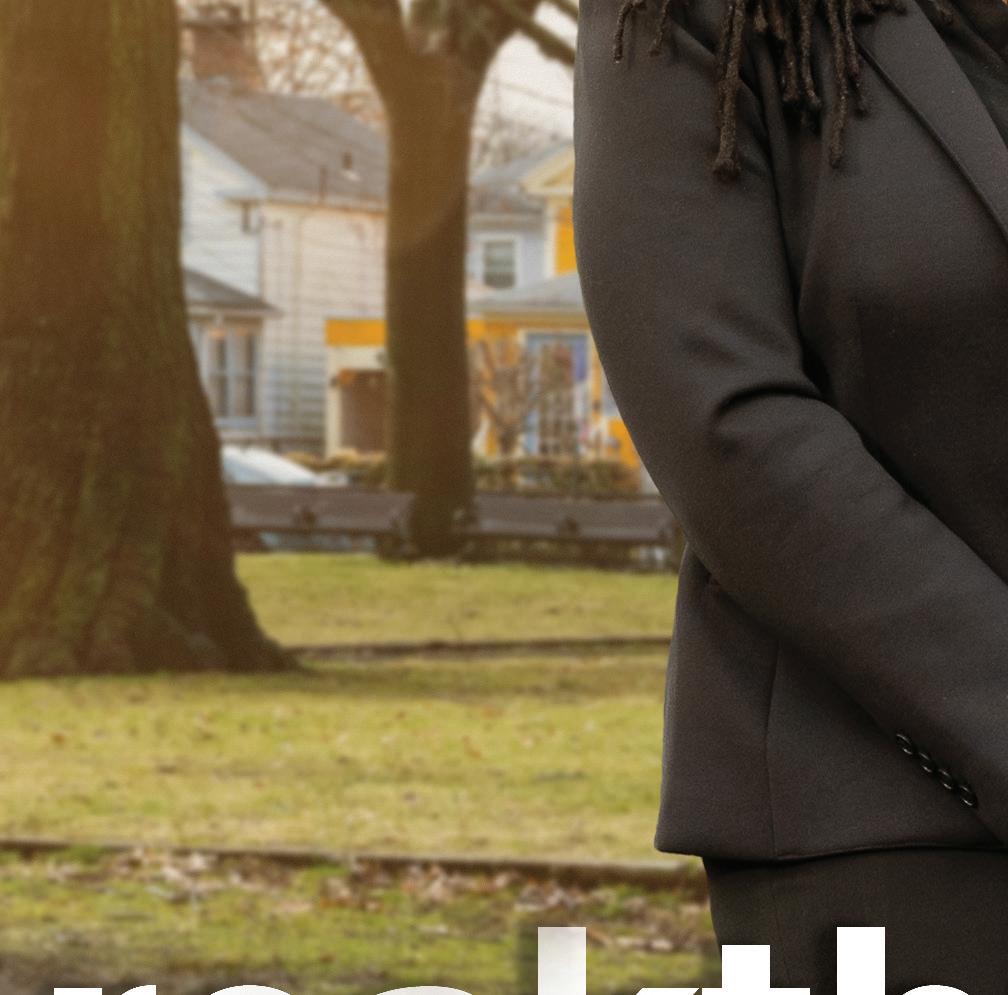

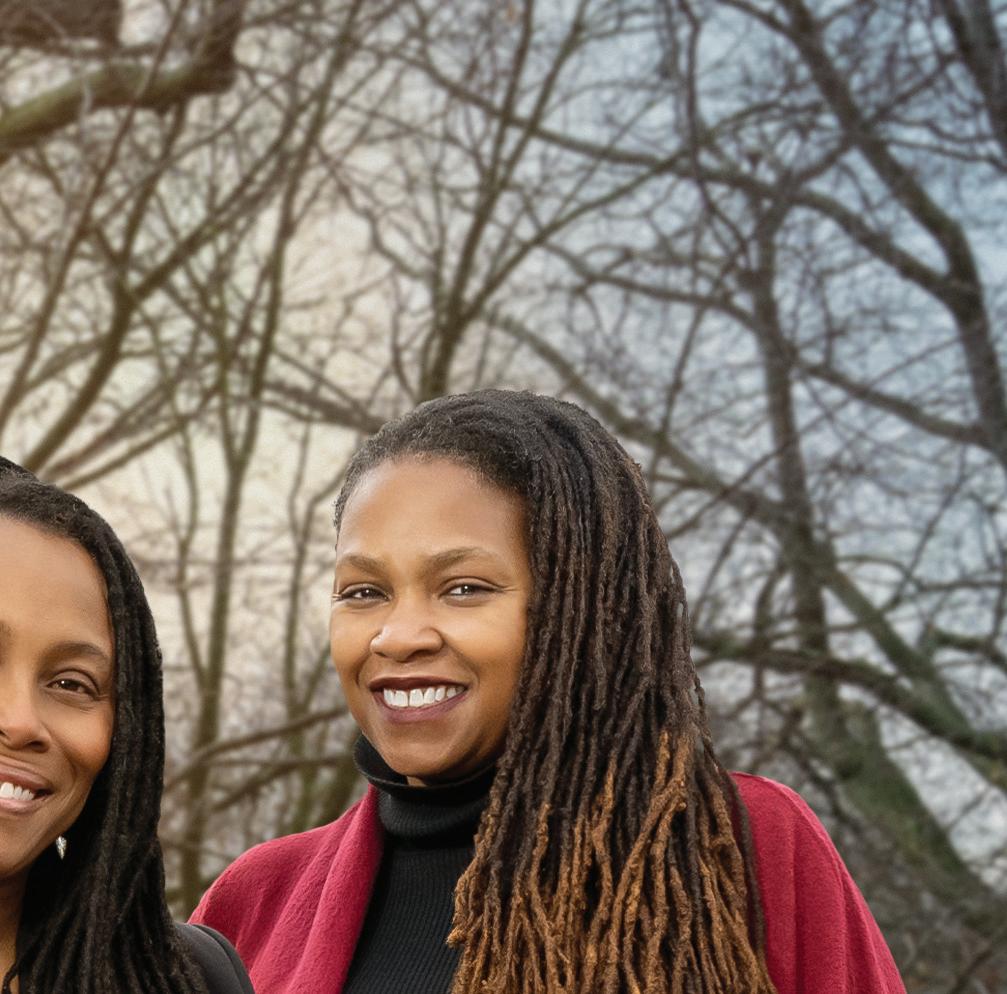


yale cancer center

Director



Eric P. Winer, MD
Deputy Director, Finance & Administration
Margaret H. Gilshannon, MHA
Director, Public A airs and Marketing
Renee Gaudette
art + production
Designer Scott Benton Peter Baker Studios
contributors Writers
Terence Corcoran
Eliza Folsom
Steve Kemper
Emily Montemerlo
Kristin Rattini
Photographers Peter Baker



Joel Callaway
Breakthroughs is published annually to highlight research and clinical advances from Yale Cancer Center and Smilow Cancer Hospital.
Yale Cancer Center 333 Cedar Street, PO Box 208028 New Haven, CT 06520-8028 yalecancercenter.org
© Copyright 2023, Yale Cancer Center.
All rights reserved. No part of this periodical may be reproduced by any means, prints, electronic, or any other, without prior written permission of the publisher.





Editorial O ce Yale Cancer Center
2 Church Street South, Suite 312 New Haven, CT 06519 renee.gaudette@yale.edu


2 Director’s Letter

4 A Commitment to Community
The Center for Community Engagement and Health Equity at Yale Cancer Center strives to achieve health equity and eliminate the burden of cancer for all, across Connecticut.





8 Diversity, Equity, and Inclusion E orts Start at the Top
Efforts to expand diversity, equity, and inclusion at Smilow Cancer Hospital and Yale Cancer Center emanate from Eric P. Winer, MD, Director of Yale Cancer Center and Physician-in-Chief of the Smilow Cancer Network and extend throughout the enterprise.
12 Taking Early Phase Trials to Minority Patients
Patricia LoRusso, DO, is directing a new initiative intended to improve minority enrollment in Yale’s early phase cancer trials by bringing the trials to clinics in urban communities beyond Smilow Cancer Hospital in New Haven.
16 Sisters’ Journey
A community group exemplifying hope, support, and self-advocacy for women of color with breast cancer.
19 Fellows Bring Community Voice into Research


Yale Cancer Center’s Community Research Fellowship Program matches members of the community with research groups to form relationships and provide research experience.
22 Addressing Disparities in Breast Cancer
A new study at Yale will concentrate on Black and Latina women and extend previous work on the links between breast cancer and lifestyle factors.


24 Taking a Deeper Look at Lung Cancer Screening
New Yale research has revealed that Blacks are less likely to get screened for lung cancer than whites, despite being at greater risk.
26 Discrepancies in Biomarker Burden
Further refinement of tumor mutational burden for diagnosis and treatment of patients is critical, particularly for non-white patients where data is currently limited.
28 Pulling Back the Curtain on Surgical Disparities

Following surgery for gastrointestinal cancers, Black patients are less likely to be referred for and to receive follow-up for adjuvant therapy.
30 Yale Cancer Center and Smilow Cancer Hospital Leadership
32 Yale Cancer Center Membership
34
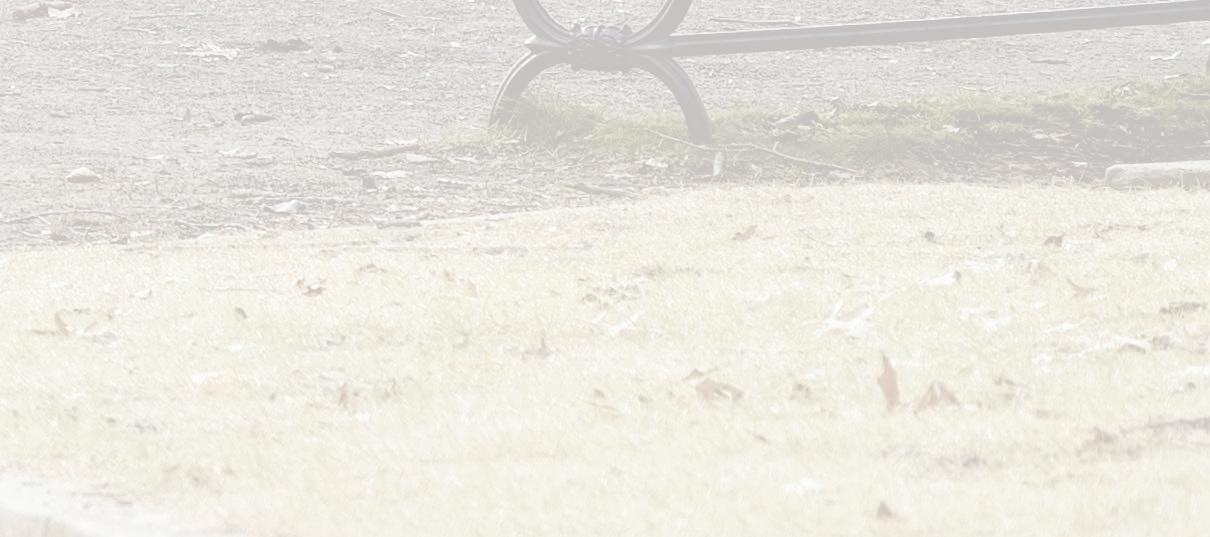


1 yalecancercenter.org | Yale Cancer Center
Yale Cancer Center and Smilow Cancer Hospital Data


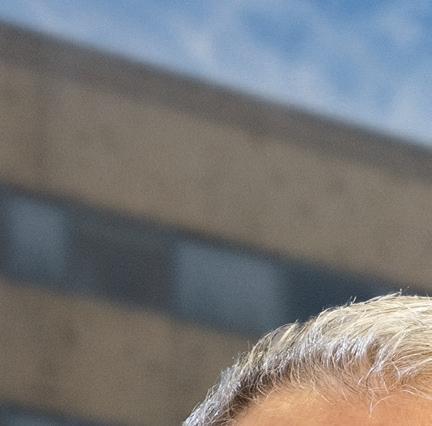


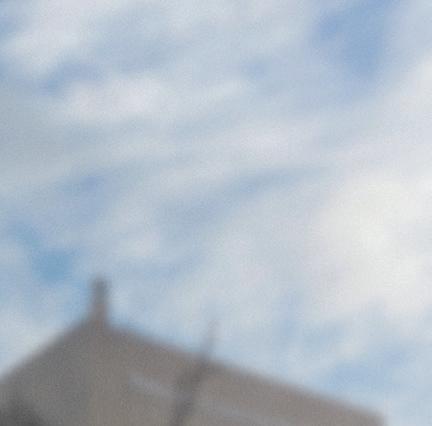



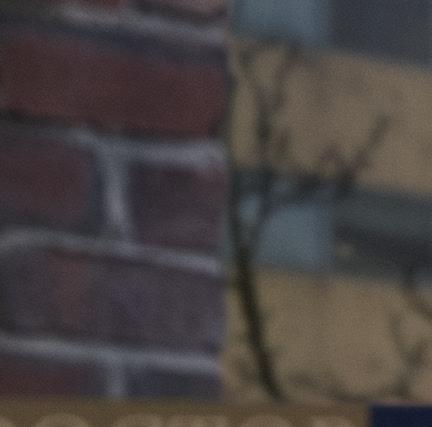

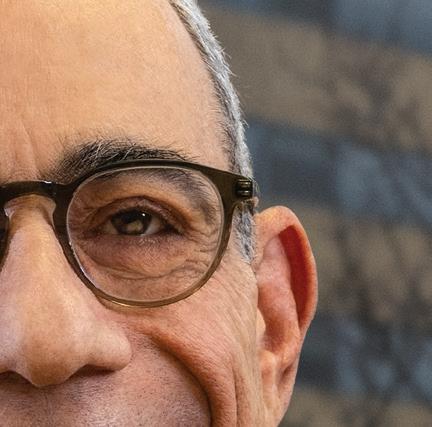


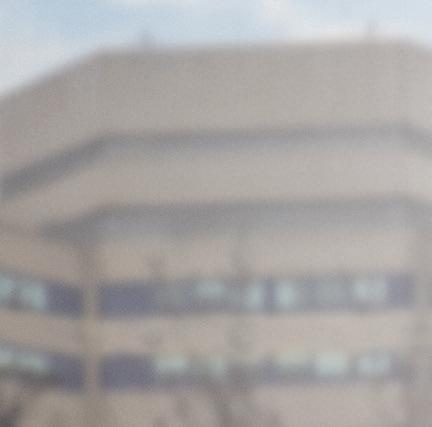


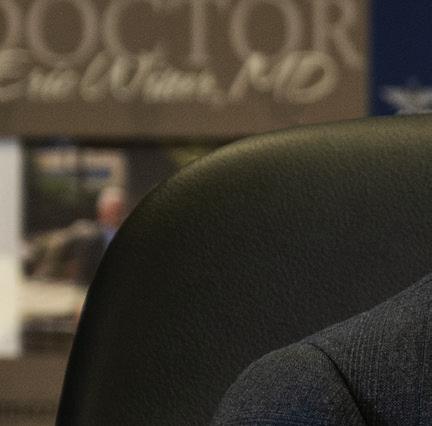





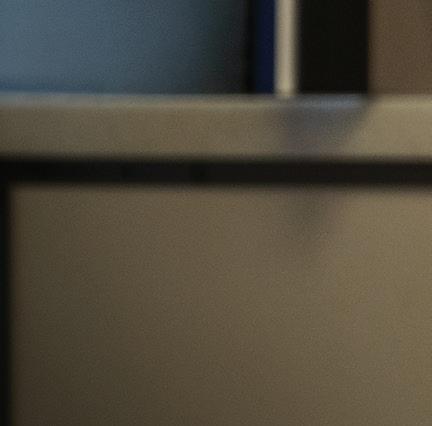




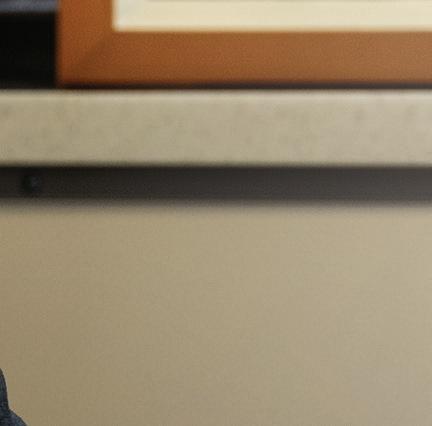
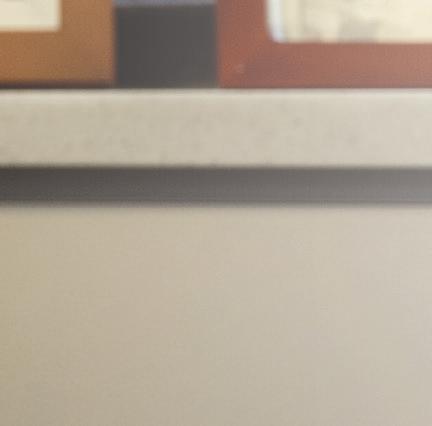





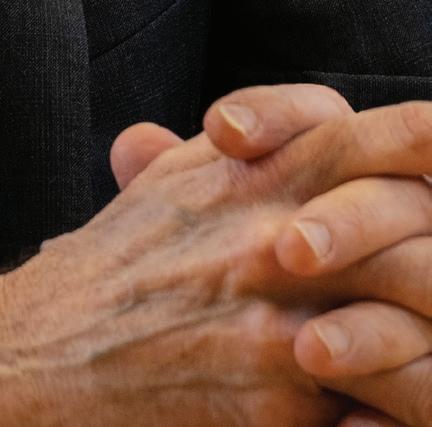

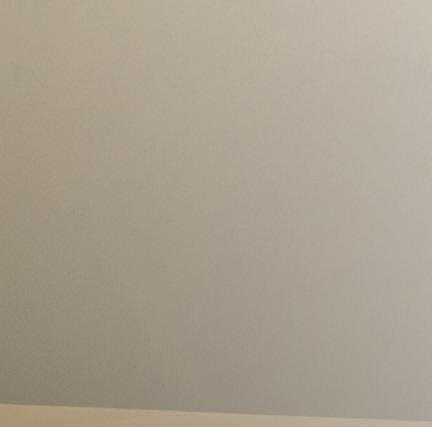








2 Yale Cancer Center | Year in Review 2023
This issue of Breakthroughs shares the commitment of Yale Cancer Center and the Smilow Cancer Network to address the challenges that communities across our nation face accessing cancer care. Through innovative programs, education, outreach, and research, we are working together to improve access to cancer care and to make an impact on the people we care for.
Our Smilow Cancer Network provides comprehensive, multidisciplinary cancer care at each of our sites throughout Connecticut and into Rhode Island. Patients will have access to subspecialized doctors and the latest clinical trials at Smilow clinical facilities most convenient to them, without the need to travel to New Haven.





We are capitalizing on our extensive network as a critical component of striving for equitable care across the state. As we work to provide the best cancer care to everyone, we recognize that disparities exist in many minority populations or those who have been traditionally marginalized. To tackle these issues, we are collaborating with our leaders in education, community outreach, and diversity, equity, and inclusion to identify the challenges and reduce the disparities. For example, partnering with Yale Cancer Center’s Center for Community Engagement and Health
Equity (CEHE), directed by Marcella Nunez-Smith, MD, MHS, and Sakinah Carter Suttiratana, PhD, MPH, MBA, we are working to engage the population we care for in traditionally underserved neighborhoods. CEHE leverages a wide range of approaches including community-engaged research, community outreach, education, advocacy, and policy reform to maximize access to clinical care. Our passion and innovative programs are making an impact, and I look forward to CEHE’s national leadership in community outreach in the years ahead.
We also understand that we have an obligation to diversity, equity, and inclusion within Yale Cancer Center and the Smilow Cancer Network. Our leadership team is committed to ensuring a welcoming, inclusive environment for every member of our team—our staff, physicians, and trainees. In turn, we hope that a more diverse clinical staff leads to a more welcoming approach for all patients.

In support of our efforts to reduce disparities in Connecticut and beyond, we launched a fund at Yale Cancer Center in 2022 to Diminish Cancer Care Disparities that will be leveraged to improve key health metrics and create more equitable access to cancer care. We are committed to addressing the striking disparities that exist in our
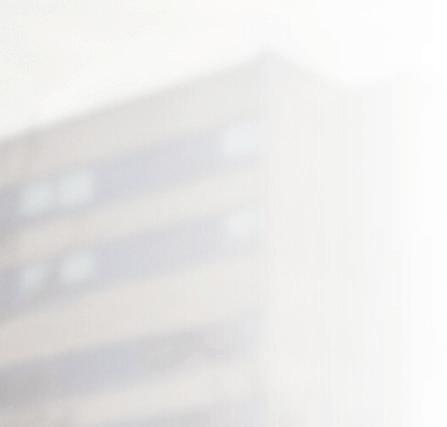
communities despite tremendous increases in awareness, spending, and widespread efforts to eliminate inequities.
As an example, a 20-year-old Black American woman has twice the chance of dying from breast cancer before age 50 compared to a white American woman. Such statistics, and present-day realities, are simply unacceptable. We look forward to far better outcomes FOR ALL.
As I look back on my first year at Yale Cancer Center and the Smilow Cancer Network, I am both grateful and excited about what the future holds for our community. We have tremendous momentum and will continue to make progress in cancer research and cancer care.
Sincerely,

 Eric P. Winer, MD Director, Yale Cancer Center Physician-in-Chief, Smilow Cancer Network
Alfred Gilman Professor of Pharmacology and Medicine
Eric P. Winer, MD Director, Yale Cancer Center Physician-in-Chief, Smilow Cancer Network
Alfred Gilman Professor of Pharmacology and Medicine
3 yalecancercenter.org | Yale Cancer Center
We are committed to addressing the striking disparities that exist in our communities despite tremendous increases in awareness, spending, and widespread efforts to eliminate inequities.
A Commitment to Community

The Center for Community Engagement and Health Equity







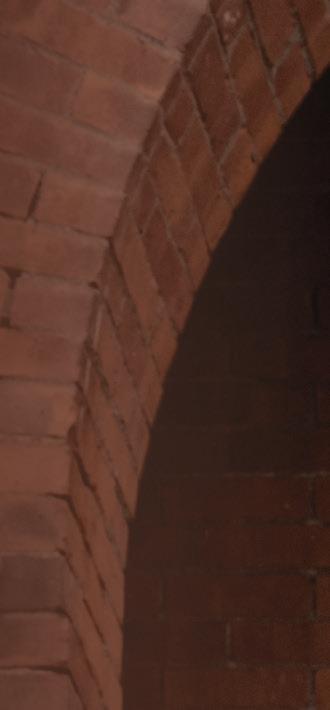
at Yale Cancer Center strives to achieve health equity and eliminate the burden of cancer for all, across Connecticut.
What is community? For the Center for Community Engagement and Health Equity (CEHE), it’s not just the people in the neighborhoods surrounding Yale and the partners in surrounding towns, but the whole state of Connecticut.





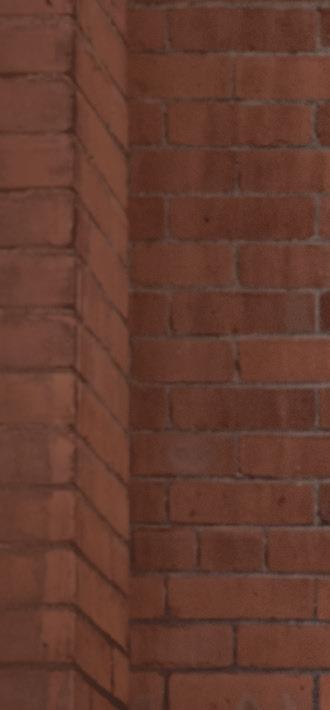
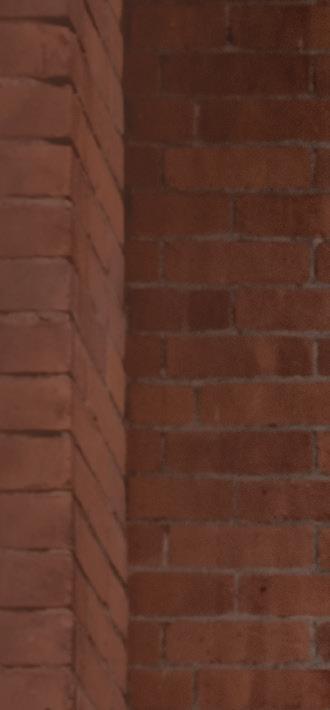
“The entire state of Connecticut is our catchment area, and it’s a microcosm of the country in terms of demography, variations in income, and access to resources,” said Marcella Nunez-Smith, MD, MHS, Director of CEHE.
By extending the vast expertise and resources of Smilow Cancer Hospital and Yale Cancer Center and partnering with community members and organizations on outreach, education, and research, CEHE is driven to ensure cancer health equity, improve outcomes in traditionally underserved neighborhoods, and redefine what quality cancer care looks like across the state.
“As we are making a difference for individuals and families in this state, we have the opportunity to be a model for other states and cancer care networks for how you partner with the community to advance the science and care of cancer,” said Dr. Nunez-Smith.
COMMUNITY CHAMPION PARTNERSHIPS
Patients at Smilow from structurally marginalized communities often have contributing factors beyond cancer that significantly affect their health and access to treatment: food insecurity, housing instability, and lack of transportation to name a few. Through CEHE’s Community Champion Partnerships, Smilow is collaborating with established community-based organizations to identify and address patients’ critical unmet health-related social needs.
“It’s a bidirectional relationship,” said Jessica Lewis, PhD, LMFT, CEHE’s Deputy Director. “We refer patients to these partners so they can be connected with food banks and other vital resources by trusted members of their community. In turn, our partners link anyone in their social service practice area back to us for care, screening, or prevention services.”
One of the two pilot partners in the program, the Community Action Agency of New Haven (CAANH) has a mission to offer pathways to prosperity to those in poverty in the Greater New Haven area. It served 10,970 families in 2021. “Many of them have serious health issues and have not had access to information that could directly benefit their daily lives after they’ve left a healthcare institution,” said Amos Smith, CAANH’s Director. “What distinguishes the Community Champion Partnership is Smilow’s willingness to reach out into the community; there’s a big plus and benefit to this level of engagement.”
Once Smilow practitioners screen patients for these social determinants of health, they enter their referrals into a platform called UniteUs. The platform not only lists relevant resources available, but also tracks the progress of the referral and serves as a data repository for researchers.
“We’ve started with our partners in New Haven, Bridgeport, and Hartford, but our goal as we expand is to connect with community-based organizations across the entire state, to bring cancer information, services, and care to their clients in their communities,” Dr. Lewis said.
COMMUNITY ADVISORY BOARD



Research should not exist in an institutional vacuum. The community advisory board of the Center for Community Engagement and Health Equity at Yale Cancer Center “ensures a diverse and representative community voice to guide the center’s priorities and programming, especially in terms of research priorities,” said Alycia Santilli, co-chair of the advisory board. “We frame all of our work through a health equity lens.”
CEHE administers the advisory board, which is embedded within the Center for Research Engagement’s community steering committee. The committee brings more than 20 years of experience and expertise.
At their monthly meetings, the board members—cancer survivors, caregivers, and others affected by cancer in their communities—advise Yale Cancer Center researchers on their new ideas and projects, ranging from a lung cancer screening app to tumor tissue donation, and others. For example, when medical oncologist

4 Yale Cancer Center | Year in Review 2023 | Year in Review




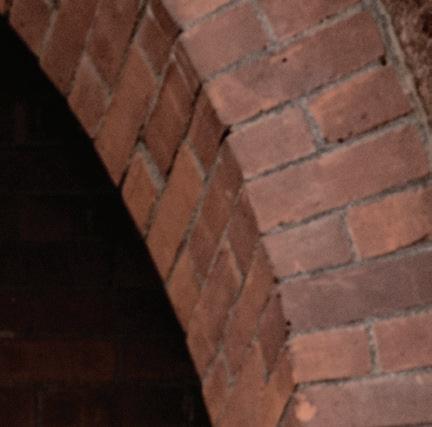






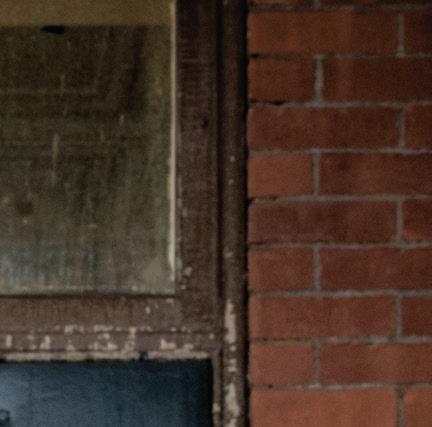
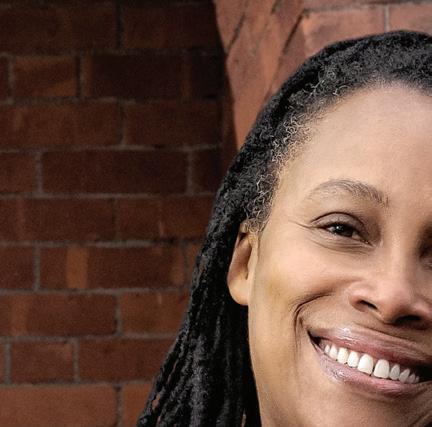


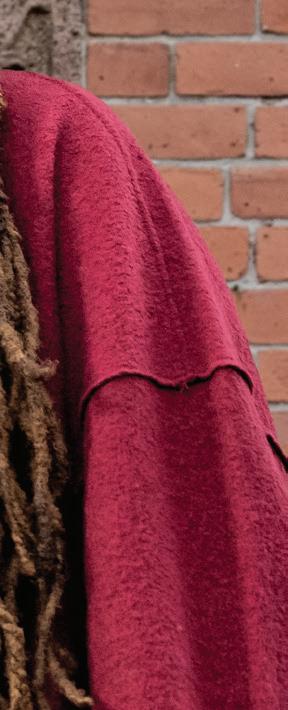
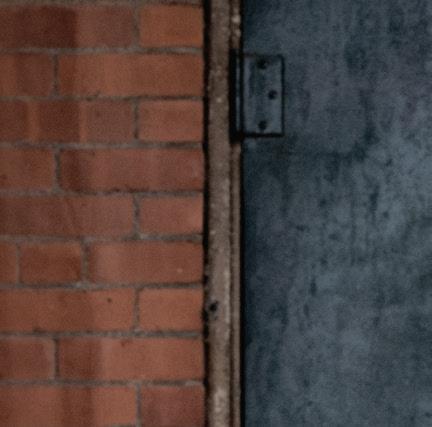



































Yale Cancer Center
Marcella Nunez-Smith, MD, MHS
– Sakinah Carter Suttiratana, PhD, MPH, MBA
5 yalecancercenter.org |
Sakinah Carter Suttiratana, PhD, MPH, MBA
”
“
“As we make advances in cancer detection and treatment, it’s important to me to ensure that those benefits are dispersed throughout the population, regardless of where you’re born, where you live, and what language you speak.
Neal Fischbach, MD, shared his plans for the Thrive Center, a community wellness center in the Bridgeport, CT area, he asked the board members which specific health programs they would like the center to offer.
The board members also communicate community concerns back to Yale. “The issue that comes up over and over again at our board meetings is prevention,” Ms. Santilli said. “How do we ensure that there is equitable distribution of resources and information, especially among Black and brown communities, to ensure they’re educated about cancer screenings, prevention, and care?”
“We have really dramatic disparities related to cancer in our own backyard right here in New Haven,” Ms. Santilli continued. “The board is ensuring that Yale is paying special attention to the people who live right next door and meeting the needs of neighbors as we move forward in these next new phases of health equity and cancer care.”
REDEFINING QUALITY CANCER CARE




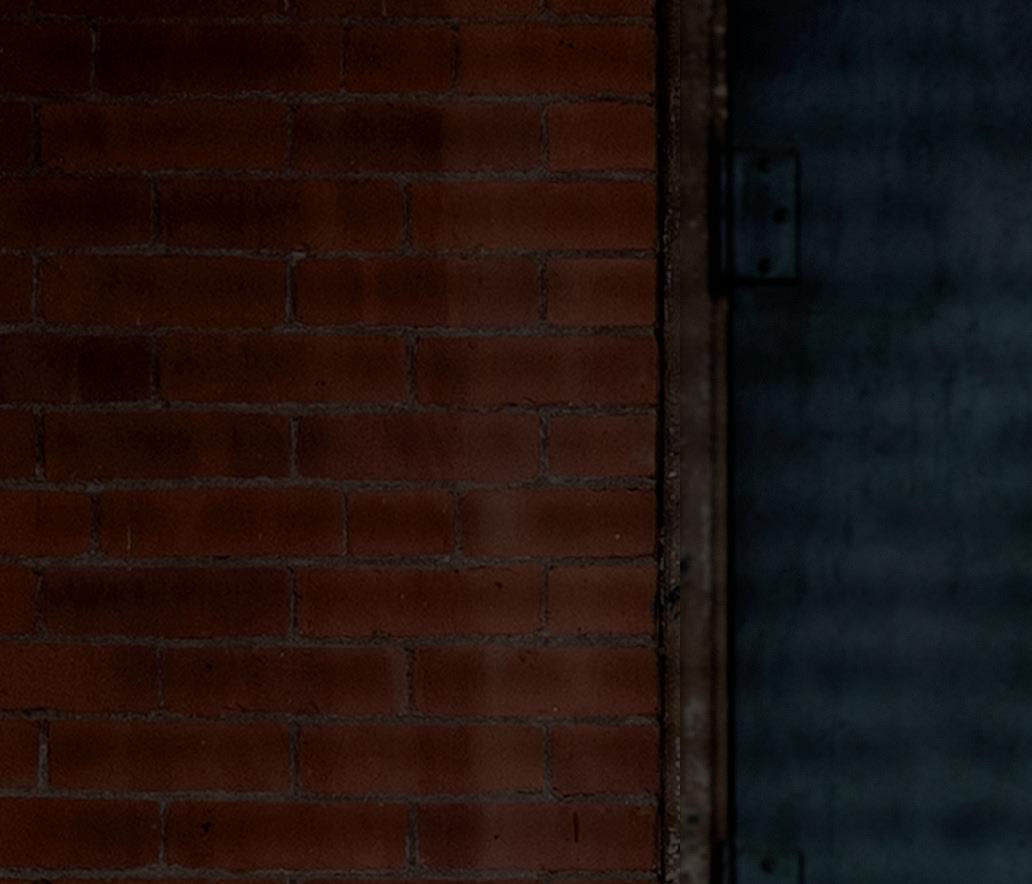






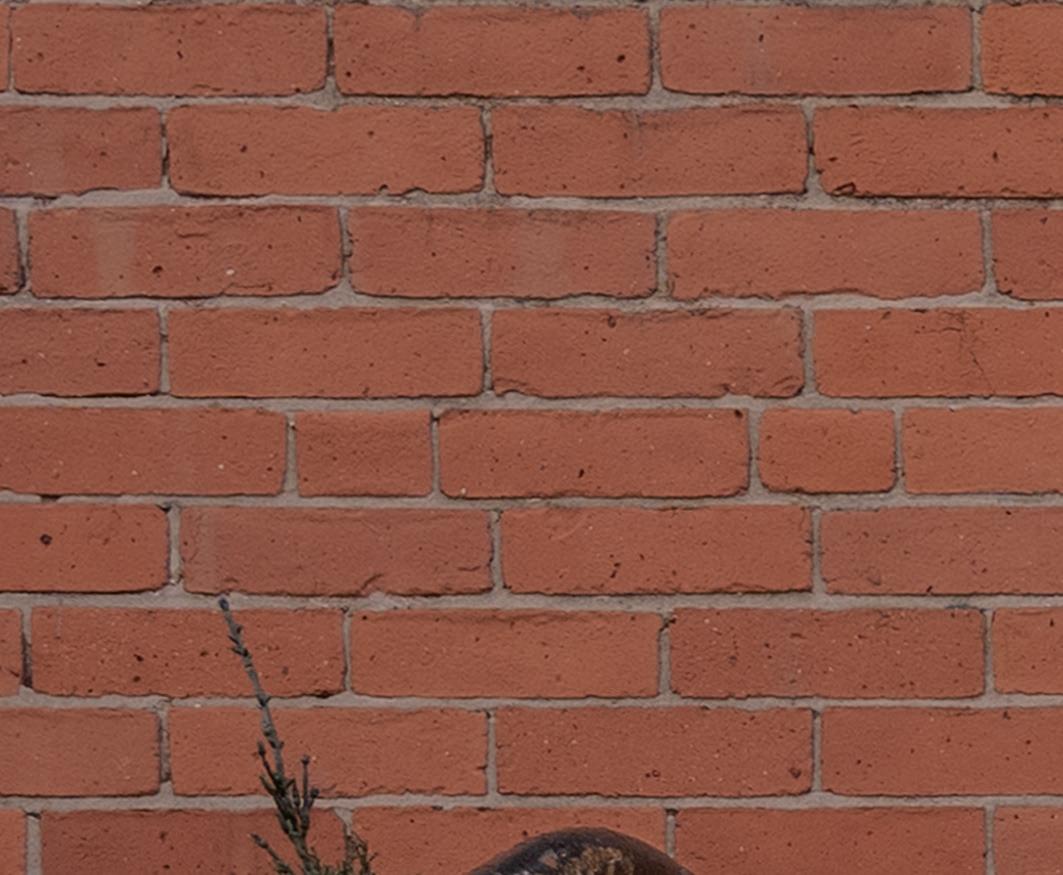




CEHE’s Co-Director, Sakinah Carter Suttiratana, PhD, MPH, MBA, has walked those very neighborhoods. A medical sociologist, she is the co-director of a year-long community-engaged research course that starts off with the participants—physicians and PhD-level nurses—touring several neighborhoods in the vicinity of Yale School of Medicine.
That boots-on-the-ground interaction mirrors CEHE’s own mission of increased community engagement. “I share our director’s vision for an academic research center that is more attuned to community concerns and finding more equitable health solutions,” Dr. Suttiratana said. “As we make advances in cancer detection and treatment, it’s important to me to ensure that those benefits are dispersed throughout the population, regardless of where you’re born, where you live, and what language you speak.”
Dr. Suttiratana is currently applying her research expertise to the quantitative quality measures that are standard across the healthcare system for accreditation and payment purposes. “We’re looking at how those measures can help us think
6 Yale Cancer Center | Year in Review 2023
about health equity across Connecticut, in terms of rural versus urban or racial and ethnic disparities in care,” she explained. “But we are also looking at how community members and patients would define quality cancer care, because what’s important to them may be quite different than the quality measures that hospitals report and monitor.”






For example, cancer care facilities report the proportion of women aged 50 to 74 years who are screened for mammograms on a biannual basis. However, there is no systematic monitoring of what happens if a patient has an abnormal result but does not follow-up for next steps. “Understanding what happens and better supporting patients so that they are more likely to call back seems like something we can work on together as a cancer center,” she said.













In Dr. Suttiratana’s countless conversations with community members and patients, many cited the same factor as a key measure of quality cancer care: clear, consistent, and continuous communication. “It means making sure that communication between provider and patient was clear. That options available to them for treatment were clearly communicated not only to the patient but also to the family members helping make that decision,” she said. “It means that from the time they made their first appointment through their multiple courses of treatment, that someone was following up with them. From beginning to end, that is the expectation of community members.”
CEHE is dedicated to making sure such invaluable community insights are not just heard but acted on by ready and eager colleagues across the Smilow Cancer Network and Yale Cancer Center to inform and improve cancer care delivery and equity. “At the end of the day, we’re holding ourselves accountable to our patients and our communities,” said Dr. Nunez-Smith. “We are tireless in trying to innovate for ways in which we can do this faster, better, and more intentionally than we have before.”
7 yalecancercenter.org | Yale Cancer Center
At the end of the day, we’re holding ourselves accountable to our patients and our communities. We are tireless in trying to innovate for ways in which we can do this faster, better, and more intentionally than we have before.
– Marcella Nunez-Smith, MD, MHS
”
“
DIVERSITY, EQUITY, AND INCLUSION EFFORTS START AT THE TOP
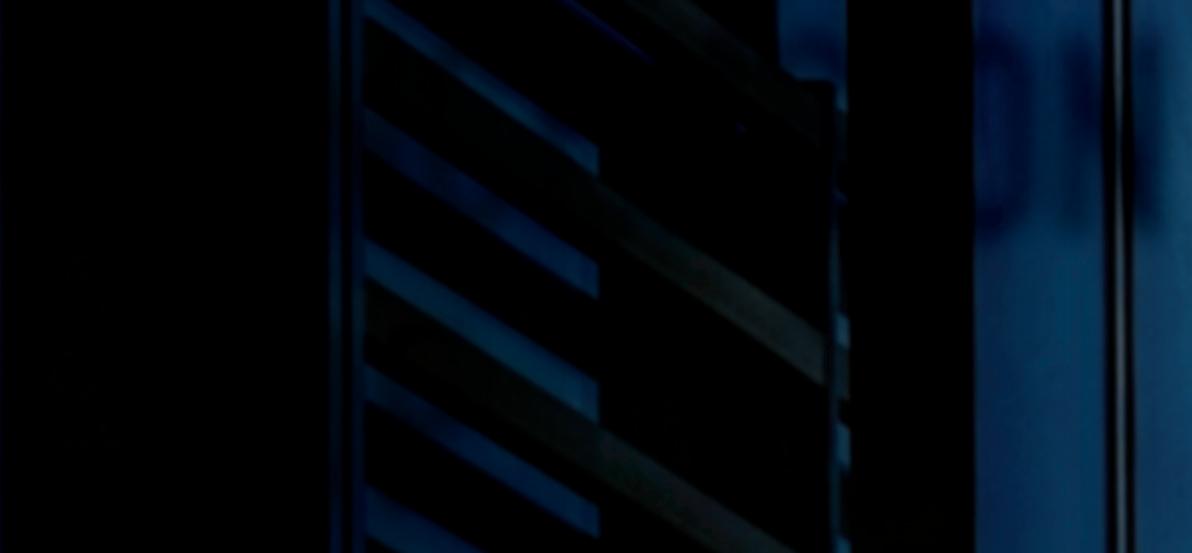


Efforts to expand diversity, equity, and
inclusion across Smilow Cancer Hospital and Yale Cancer Center are focused on diversifying the medical staff, faculty, trainees, and student body, but, more importantly, bringing equity to disparities in healthcare outcomes.


The focus emanates from Eric P. Winer, MD, Director of Yale Cancer Center and Physician-in-Chief of the Smilow Cancer Network and extends throughout the enterprise. The leadership is committed to building a staff that more closely resembles the community it serves and ensures that everyone benefits from advances in medicine, regardless of their background or economic status.
“The causes of disparities in healthcare outcomes are many,” said Dr. Winer, who is also the Alfred Gilman Professor of Pharmacology and Professor of Medicine (Medical Oncology). “The contribution of sociodemographic factors, unequal access to care, and the failure of our cancer care system to help every patient complete their treatment play a major role. We are totally committed at Yale to addressing this problem and diminishing these disparities.”
Faye Rogers, PhD, who was recently appointed Associate Cancer Center Director for Diversity, Equity, and Inclusion, said her primary goal is to increase the diversity of faculty, staff, and trainees within Yale Cancer Center. “Beyond

increasing the diversity of our community, it is essential that we create an inclusive environment where each individual feels a true sense of belonging,” said Dr. Rogers.
Among the many leaders helping to reach those goals are Aliènne Salleroli, MS, BSN, RN, OCN, Assistant Patient Services Manager, Smilow Cancer Hospital; Paris Butler, MD, MPH, FACS, Associate Professor of Surgery (Plastic) and Vice Chair of DEI for Surgery; and Alfred Lee, MD, PhD, Professor of Medicine (Hematology) and Director of the Medical Oncology-Hematology Fellowship Program.
“DEI should stand on its own,” said Ms. Salleroli, Co-Chair of the Yale New Haven Hospital DEI Nursing Task Force. “It should be on every single nurse’s mind with everything they do. They should constantly be thinking, ‘Is this fair? Is this right? Is this helping the patient?’”




“Our medical system is plagued by immeasurable health inequities and health disparities, both in the U.S. and globally,” said Dr. Lee, who directs the Medical OncologyHematology Fellowship Program. “There’s never been a more important time to be in medicine to embrace these challenges and transform them to the benefit of patients everywhere.”
“I can proudly say that I started looking at disparities in surgery in 2006 as I started feeling somewhat isolated as an African-American man in surgery,” Dr. Butler said.
But Dr. Butler, who began pushing for enhanced diversity efforts long before the murders of George Floyd and Ahmaud Arbery, and the killing of Breonna Taylor brought DEI to the forefront, bristles at the false narrative that diversity means lowering the bar. “Nothing could be further from the truth—this is all about achieving inclusive excellence.”

To illustrate the disparities, Dr. Winer notes that a Black woman in Washington, DC, is twice as likely to die from breast cancer than a white woman who lives there—despite breast cancer incidence rates being lower in Black women than white women. “The more effective we are in curing cancer, the more we are able to help people live longer, the more tragic these disparities become,” Dr. Winer said. “It may be delays in screening, or poor access to care. It may be having a provider who doesn’t look like you and may not feel like someone you can talk to. It can be not having the resources to afford a taxi to go to the clinic for treatment. It’s a complicated problem and there isn’t one easy fix.”
For Ms. Salleroli, it’s a matter of getting people to become comfortable with an uncomfortable topic, understanding their implicit biases—and overcoming them. “We need to stop making DEI an uncomfortable topic,” she said. “Part of everything we do—at all staff meetings—should be talking about different cultures, different marginalized
8 Yale Cancer Center | Year in Review 2023
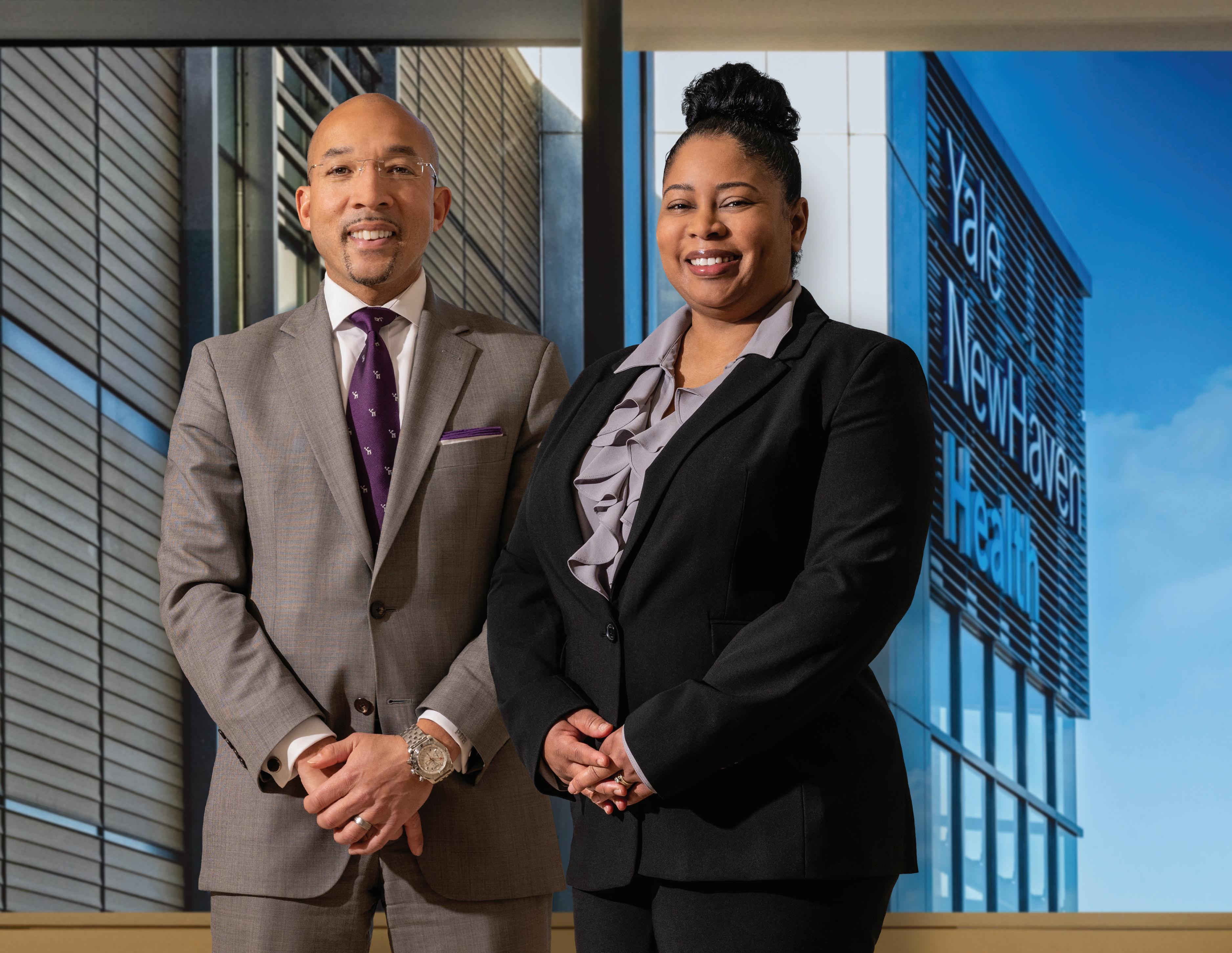
9 yalecancercenter.org | Yale Cancer Center
Paris Butler, MD, MPH, FACS
Faye Rogers, PhD
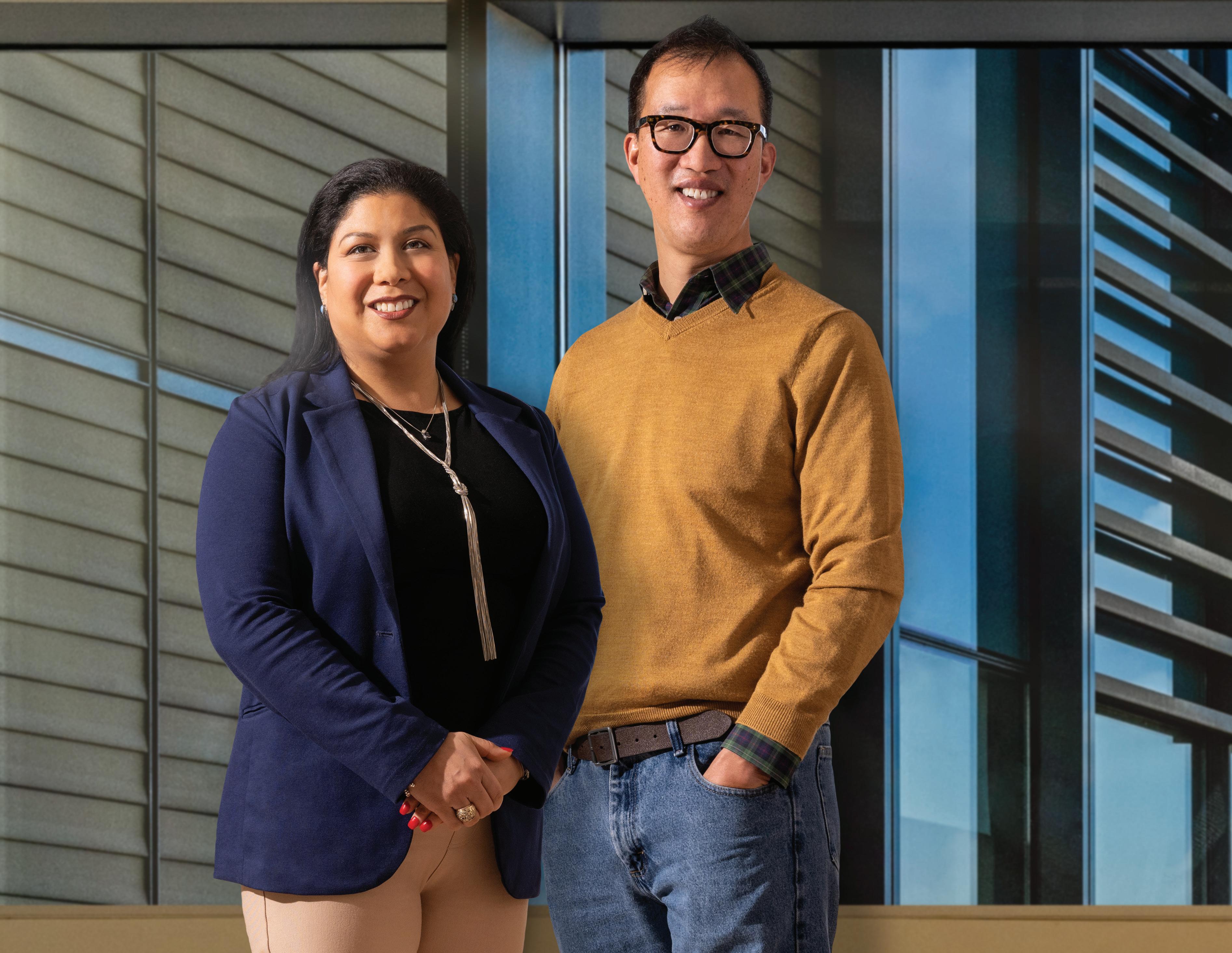 Aliènne Salleroli, MS, BSN, RN, OCN
Aliènne Salleroli, MS, BSN, RN, OCN
10 Yale Cancer Center | Year in Review 2023
Alfred Lee, MD, PhD
communities, and our differences. Then, we can go to the next step and start doing education.”
Equally important, Dr. Rogers explained, is finding ways to evaluate the progress of our DEI efforts. “We need to implement DEI metrics or benchmarks to gauge how we’re doing. ‘Are we closer to our ultimate goal?’”
Everyone has implicit biases, Ms. Salleroli said, but doing the difficult work of recognizing them helps you and everyone you encounter. “Initially, you might feel a little angry about doing this work because you don’t feel you’re biased against anyone,” she said. “But then you start to think about it, and as we continue the conversation, you become more comfortable with the concept of acknowledging your biases and learning how to deal with them. It’s a long process—and nursing leadership must start this conversation.”
Dr. Lee notes the diversity in the Yale School of Medicine Class of 2026—with 27 members born outside the United States from 20 different countries and regions—and says that as scientific progress continues, it must be available to everyone. “All individuals, regardless of their background, their financial means, their skin color, their cultural identity, their sexual identity, or their beliefs, must benefit equally.”

Creating pathway programs to introduce underrepresented groups to cancer research will be valuable in diversifying the next generation of cancer researchers,



Dr. Rogers said. “We must strive for early exposure (from high school), provide an entry point into research for undergraduates, and cultivate graduate students to postdoctoral fellows with the knowledge, skills, and resources to successfully make the transition as junior faculty,” she explained. “Establishment of programs that accomplish this will not only increase diversity here at Yale, but can also contribute to the development of a diverse nationwide workforce. We hope to develop strategies to achieve this so other cancer centers and institutions can use it as a model.”

Dr. Butler is nationally recognized for his dedication to reducing healthcare disparities along racial and ethnic lines. He has a master’s degree in Public Health and was a Policy Fellow in the Office of Minority Health in Washington, DC, helping to unroll the Affordable Care Act in underserved communities.

Despite his passion for DEI, Dr. Butler approaches it measuredly. “I’m careful to avoid being inflammatory with what I say. I’m objective, a good listener, and I will do my best to redirect in an appropriate way if someone says something completely out of bounds on either side.”





Dr. Butler knows about disparities in breast cancer treatment and outcomes but is equally concerned about disparities in breast reconstructive surgery for survivors. A study he led helped show that Black and Latina women
receive breast reconstruction at significantly lower rates compared to white women. “That’s why I’ve been in the community, along with my breast surgery colleagues, educating about disparities in breast cancer and screening rates, but also in breast reconstruction.”
Dr. Butler is also focused on increasing diversity and inclusion among residents, something he helped do at the University of Pennsylvania prior to joining Yale’s faculty. During the six years Dr. Butler was at Penn, the GME office doubled the number of ethnically underrepresented in medicine (UIM) interviewees and tripled the number of UIM matched candidates. He is working to establish a visiting clerkship at Yale to enhance diversity in the surgical workforce.
“Lengthening the table does not mean lowering the bar,” Dr. Butler said. “It is critical for those working in the DEI space to maintain the highest standards.” And he acknowledges that change may come slow to a place like Yale. “It’s going to require commitment and persistence from leadership and beyond, because we have been a place of incremental change,” Dr. Butler added. “That’s okay as long as we’re continuing to move forward.”
“I recognize that change does not come easily,” Dr. Rogers added, “however having leadership acknowledge the need to diversify our workforce is a key step in the right direction.”
“OUR MEDICAL SYSTEM IS PLAGUED BY IMMEASURABLE HEALTH INEQUITIES AND HEALTH DISPARITIES, BOTH IN THE U.S. AND GLOBALLY. THERE’S NEVER BEEN A MORE IMPORTANT TIME TO BE IN MEDICINE TO EMBRACE THESE CHALLENGES AND TRANSFORM THEM TO THE BENEFIT OF PATIENTS EVERYWHERE.”
11 yalecancercenter.org | Yale Cancer Center
– Alfred Lee, MD, PhD

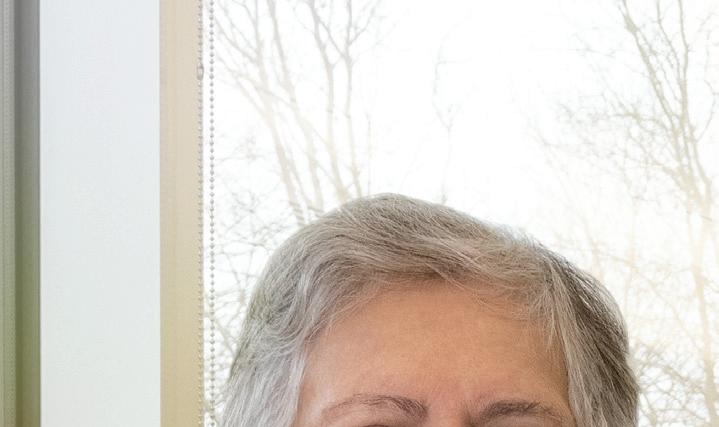
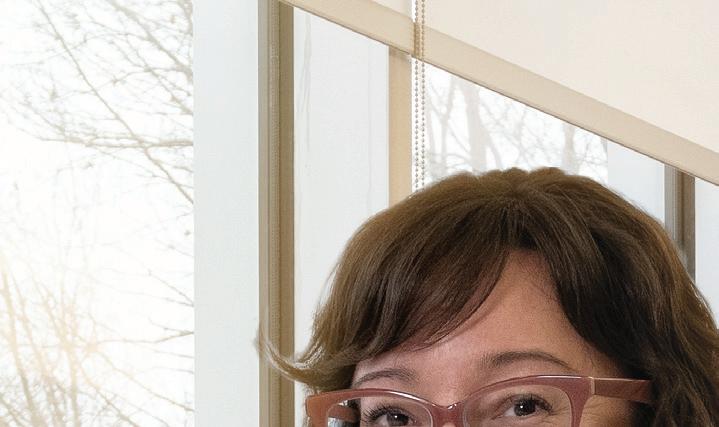



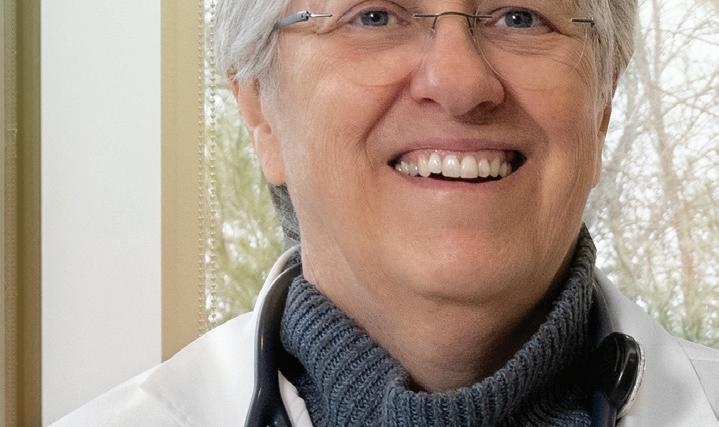





















12 Yale Cancer Center | Year in Review 2023
Patricia M. LoRusso, DO, FASCO
Carrie Fijal, MSN, OCN
Thirteen percent of the U.S. population is Black, and 18 percent is Hispanic, yet these groups each account for less than four percent of the patients enrolled in clinical trials for cancer. That startling number is even lower for early phase cancer trials, most of which are conducted through major cancer centers such as the Yale Cancer Center.







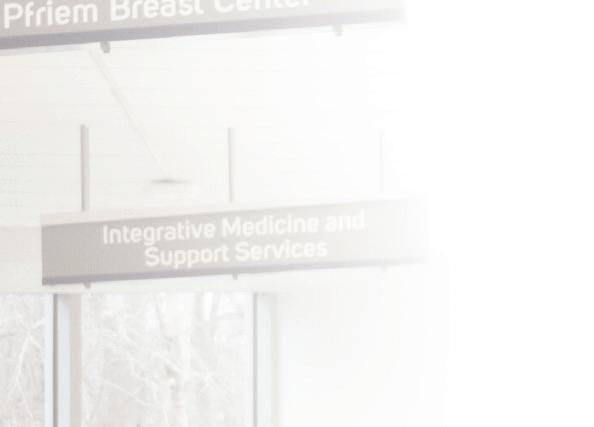
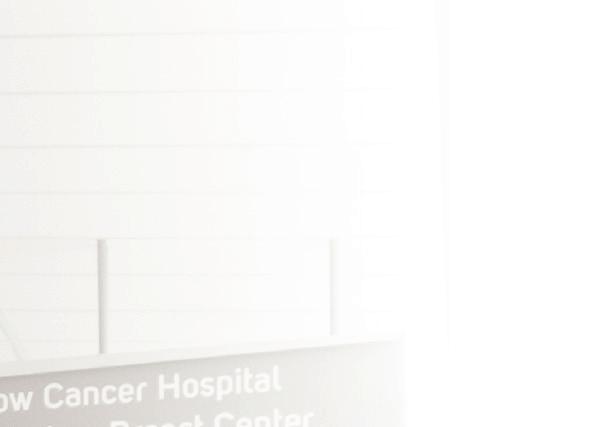

“We’ve begun to recognize a huge need to give underrepresented minorities access to early phase clinical trials,” said Patricia M. LoRusso, DO, FASCO, Professor of Medicine (Medical Oncology) and Chief of Experimental Therapeutics. She also leads the Cancer Center’s Early Phase Clinical Trials Program. “As a result of scientific breakthroughs, the drug development community is developing some outstanding drugs and seeing very encouraging responses in early phase trials,” she continued, “and the opportunity to participate shouldn’t be only for the privileged who can access major NCI Cancer Centers or afford to travel to the Phase I sites.”
Taking Early Phase Trials to Minority Patients

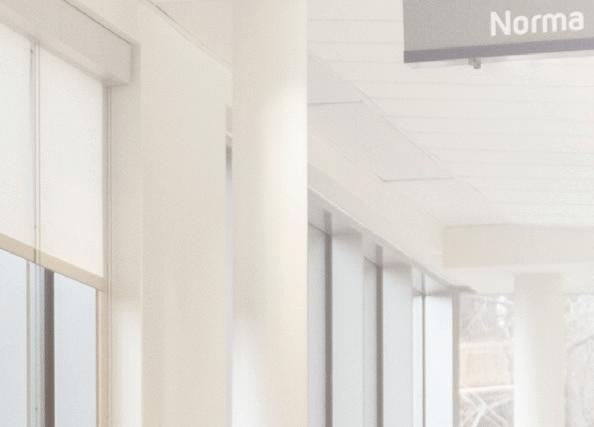
13 yalecancercenter.org | Yale Cancer Center
Dr. LoRusso is directing a new initiative intended to improve minority enrollment in Yale’s early phase cancer trials by bringing the trials to clinics in urban communities beyond Smilow Cancer Hospital in New Haven. The idea is to make participation easier and less intimidating for minority populations who might otherwise be left out.
In the project’s first phase, Dr. LoRusso and her team went to the Smilow Cancer Hospital Care Center in Trumbull and interviewed patients, physicians, and nurses to identify barriers that impede minority participation in early phase trials. “We felt that to develop the clinical component successfully, we first had to identify the barriers and the necessary tools to overcome them,” said Dr. LoRusso.

The team is now completing its analysis of the interviews. As expected, some of the identified barriers stem from social and structural determinants related to income, education, housing, and neighborhood safety. Other barriers were more surprising. A big one was location. Patients said that participating in trials at Smilow Cancer Hospital in New Haven would be difficult because of time, distance, and expense. They disliked the necessity to drive or find transportation to New Haven, to leave work and family, and to find a caregiver for their children. Patients also expressed some reluctance to leave their communities and the medical staff they know for the unfamiliarity of Smilow’s main hospital.
This reinforced one of the primary rationales for the new project. “We feel that if we’re going to increase recruitment among underrepresented minorities, we’ll

have to bring the trials to the patients,” said Dr. LoRusso. “They’re familiar with their community physicians, their community oncologists, their community practices and the nurses there. It’s close to home and it’s easier for them, which breaks down some of the barriers preventing them from joining early phase clinical trials.”
Another obstacle was the patients’ understandable fears about early phase trials, which were largely unfamiliar to them and to some of the medical staff as well. Some patients worried about being “experimental objects.” Dr. LoRusso’s team explained how the trials work, why they’re important, and the advantages of participating in them.
“Thinking about joining a Phase I trial can be frightening,” said Dr. LoRusso. “The consent forms themselves, which are necessary to read and sign by the patients, are 25 or 30 pages long and, depending on your literacy level and your language skills, can be overwhelming to read.”
The program is funded through generous support from Genentech, Loxo@Lilly, Gilead Sciences, and Boehringer Ingelheim. Dr. LoRusso and her team are working to bring other pharmaceutical support on board.
“To make this project successful,” said Dr. LoRusso, “we need a portfolio of clinical trials that our early phase clinical trials team can bring forward into the community sites, and these companies have joined forces with us to carry out that goal as they too recognize the importance of health equity for clinical trial participation.”
The pharma companies have been receptive, she adds, because most of them have been working with her Phase I team of clinical physicians, research nurses, and research









coordinators for eight years, and she has assured the companies that the same team will be running the clinical trials at the satellite sites. “Aside from financial reasons and their portfolio of trials,” said Dr. LoRusso, “we brought them on because they have operational brain power and are used to overcoming operational barriers. We hope to have them as engaged as possible in this hybrid decentralization project for early phase clinical trial participation.”
Dr. LoRusso also sought buy-in from the communities where the trials will take place. The project’s team includes Yale’s Center for Community Engagement and Health Equity, led by director Marcella Nunez-Smith, MD, MHS, and deputy director Jessica Lewis, PhD, LMFT. They are training community health workers, navigators, and cultural ambassadors specifically for early phase clinical trials for cancer. “We’re hoping that they will enhance recruitment,” explained Dr. LoRusso.
Another factor crucial to the project’s success are the community physicians. “Before enrolling in an early phase trial,” said Dr. LoRusso, “we identified the importance that patients place on getting ‘buy-in’ from their physicians. If their physician wants them to do something else for their cancer, they oftentimes will listen to that physician because they have already built a trusting relationship with them.” Her team plans to work collaboratively with these physicians to create a plan for each patient.
The project’s first site is the Trumbull Care Center, a large practice with eight oncologists. Dr. LoRusso and her team have been seeing patients there once a week since November, to assess the patients and their eligibility
14 Yale Cancer Center | Year in Review 2023
for early phase trials. In the first few weeks, three patients enrolled onto a trial that may not have even had the opportunity previously.





This new project dovetails with Dr. LoRusso’s Early Phase Clinical Trial Program, in which about 10 percent of the participants are minorities. She hopes that this new decentralized model for early trials will democratize accessibility and increase minority enrollment by 100 percent. Once the Trumbull site is running smoothly, in about a year, she expects to expand to Saint Francis Hospital in Hartford, another facility that serves a large, underrepresented population. “We’re focusing on two sites where we know the need exists to increase accessibility,” she said, “not only to those sites specifically but to neighboring communities, so that all cancer patients can benefit from early phase trials.”


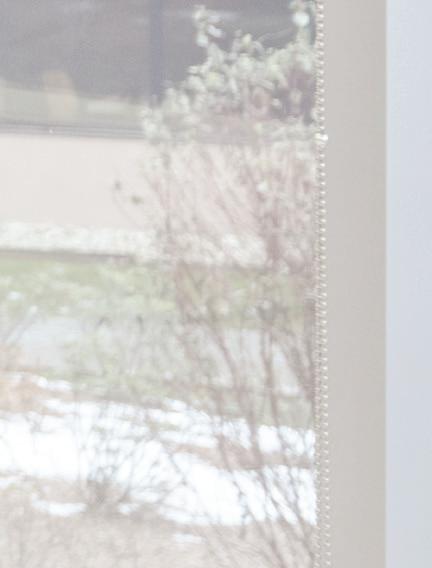



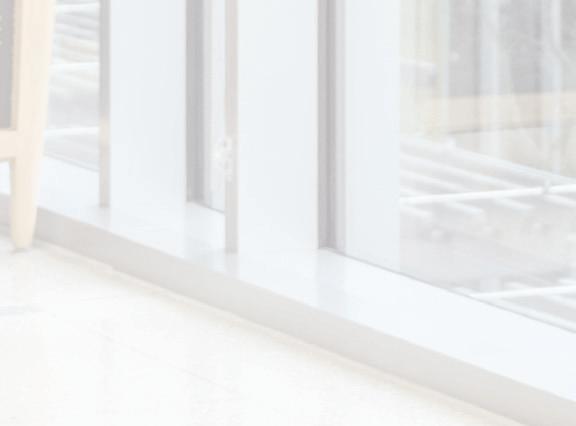

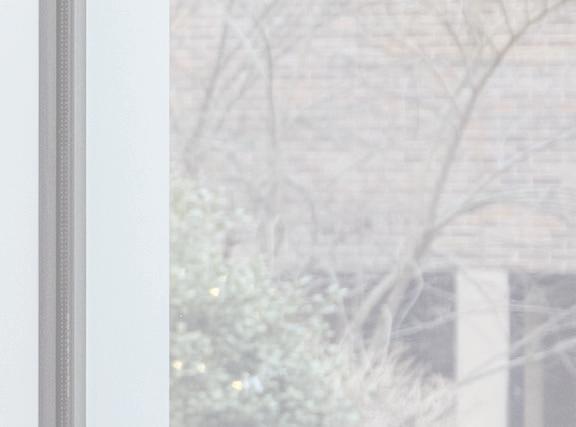


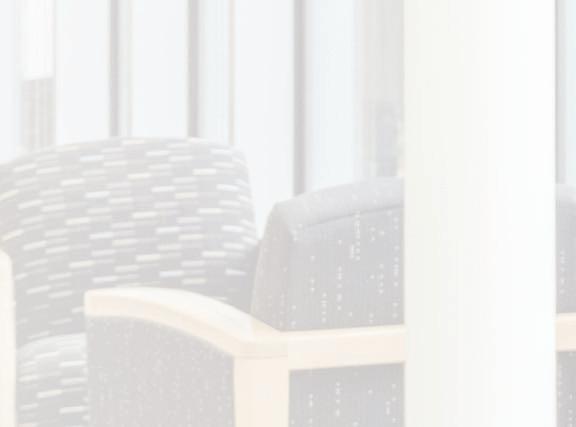


















To make this project successful, we need a portfolio of clinical trials that our early phase clinical trials team can bring forward into the community sites, and these companies have joined forces with us to carry out that goal as they too recognize the importance of health equity for clinical trial participation.
15 yalecancercenter.org | Yale Cancer Center
– Patricia M. LoRusso, DO, FASCO
Sisters’ Journey


Sharing a message of hope, support, and self-advocacy for women of color with breast cancer.
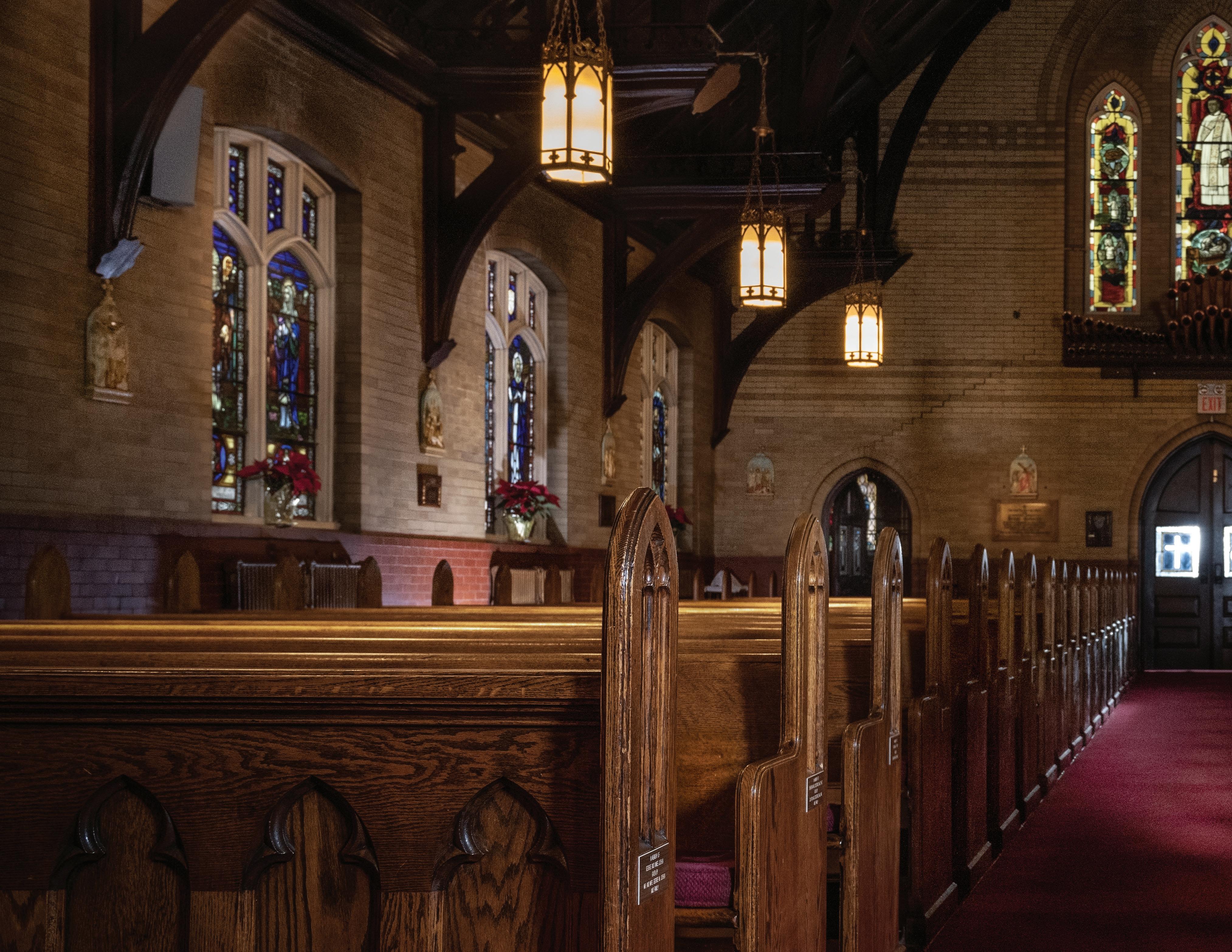
16 Yale Cancer Center | Year in Review 2023
A breast cancer diagnosis can be frightening for any woman. But due to significant and systemic health disparities, it can be an especially daunting prognosis for African American women who are 41 percent more likely than white women to die from the disease. Since 1999, the New Haven faith-based organization Sisters’ Journey has strived to ensure that no woman of color should have to endure or experience the obstacles of a breast cancer diagnosis alone.

Through its annual survivors’ calendar, Pink Tea fundraiser, monthly support meetings, and Mother Daughter Brunch, Sisters’ Journey has spread the word about breast cancer awareness and early detection and shared messages of hope, support, and self-advocacy.
There Have to be Others Around Here
Sisters’ Journey was founded by Linda White-Epps, who was diagnosed with breast cancer in 1991. “After my mom’s
17 yalecancercenter.org | Yale Cancer Center
Eileen Williams-Esdaile
Carolyn Rogers, Sisters’ Journey member
diagnosis, my grandmother, Phyllis, rallied our whole family together to be with my mother, including my aunt, Natalie Wall,” Linda’s daughter, Dawn White-Bracey, now president of the board of directors of Sisters’ Journey, said.
When Ms. White-Epps asked her doctor about local support groups, her doctor referred her to a white woman in upstate New York. “My mom thought, ‘This is crazy; there have to be others around here,’” Ms. White-Bracey said. “She soon found that there were people close to her who were survivors themselves: her cousin, her mother-in-law, her Sunday school teacher, her godmother. These were people all around her but they just didn’t talk about it.”
Unfortunately, that also included her aunt, Ms. Wall. “When we found out years after my mother’s diagnosis that Aunt Natalie had late-stage breast cancer and was dying, my mother was devastated that she couldn’t reciprocate that same support because Natalie never talked about what she was going through herself.” Ms. White-Epps founded Sisters’ Journey, vowing that her life purpose would be to aid and support others facing the same battle.
Ms. White-Epps passed away in 2003, after a recurrence of her breast cancer. Her mother and daughter subsequently kept her mission alive and strong, along with an active board and community support.
Sisters’ Journey’s biggest outreach effort is its annual calendar, which includes instructions for breast self-exams and features a different breast cancer survivor each month. Among those featured in the first calendar in 2000 was Eileen
Williams-Esdaile, a family relative, who was first diagnosed at age 37. “From the very beginning of this challenge, I opted to let everyone I knew know what I was facing and asking them to pray with me and for me as well,” she wrote in her calendar entry.
An important event on the Sisters’ Journey calendar every year is the Pink Tea. The gathering—which drew in more than 550 people in 2022—is an annual celebration of survivorship and a launch party for the new edition of the survivors’ calendar, which will celebrate its 25th anniversary in 2024. Many of the nearly 300 women featured over the years have been cared for at Smilow Cancer Hospital.
“The calendar is an exceptional tool,” explained Ms. Williams-Esdaile, now a two-time cancer survivor. “It’s not the doom and gloom stories you hear elsewhere. You see people who are still surviving and thriving, like myself,” she said. “It gives hope.”
Support and Self-Advocacy
To this day, Ms. Williams-Esdaile continues to share her story at every opportunity. As the Sisters’ Journey survivor coordinator, she is the reassuring voice greeting newly diagnosed cancer patients who reach out to Sisters’ Journey for support. She pairs them with a survivor with a similar diagnosis and invites them to the monthly support meetings. “Over the past 24 years, we have not missed a single month of meetings,” Ms. White-Bracey said proudly. When the monthly meetings shifted from in-person to Zoom format
during the pandemic, engagement increased and survivors joined remotely.
The meetings introduce newly-diagnosed women to survivors and enable all participants to share their journeys and resources. Occasional guest speakers have included Andrea Silber, MD, Professor of Clinical Medicine (Medical Oncology) at Smilow Cancer Hospital who encouraged participation in clinical trials. Smilow Cancer Hospital and Sisters’ Journey have long supported one another, dating back to when plans for Smilow were first shared with the community before its opening in 2009. More recently, Ms. Williams-Esdaile participated in Smilow’s Community Research Fellowship Program.
The Sisters’ Journey motto—be an advocate for your own body—particularly resonates at the organization’s annual Mother Daughter Brunch, which encourages attendees to understand how their family’s health history can impact their own treatment. “Knowing your family’s history can empower you to say to your doctors, ‘I have breast cancer in my family; should I be screened early?’” Ms. White-Bracey said.
Ms. White-Bracey and Ms. Williams-Esdaile continue to spread that message of empowerment and self-advocacy as they walk alongside Sisters’ Journey members on their cancer journeys. “There is such a need for this information; it’s so important,” Ms. White-Bracey explained. “How could we ever stop?”
18 Yale Cancer Center | Year in Review 2023
Since 1999, the New Haven faith-based organization Sisters’ Journey has strived to ensure that no woman of color should have to endure or experience the obstacles of a breast cancer diagnosis alone.






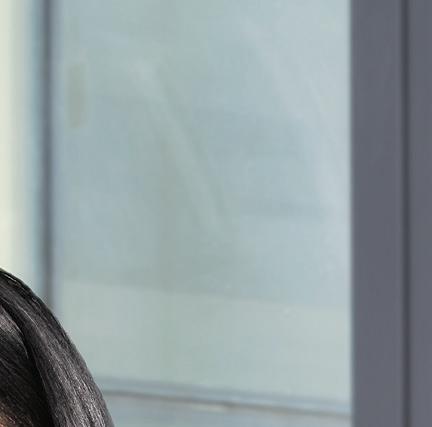




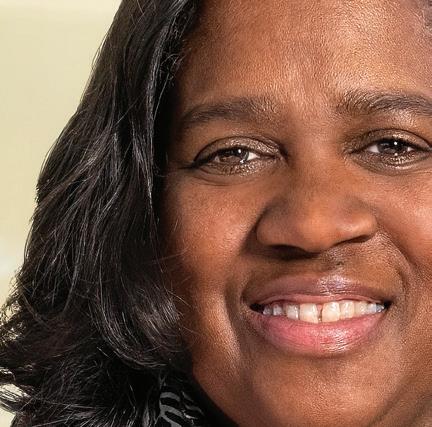

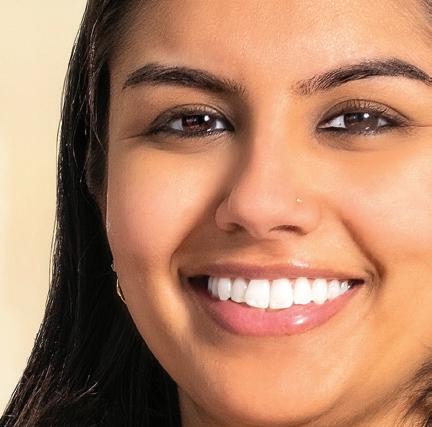
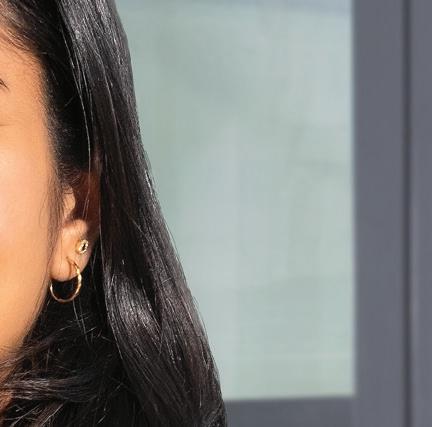

























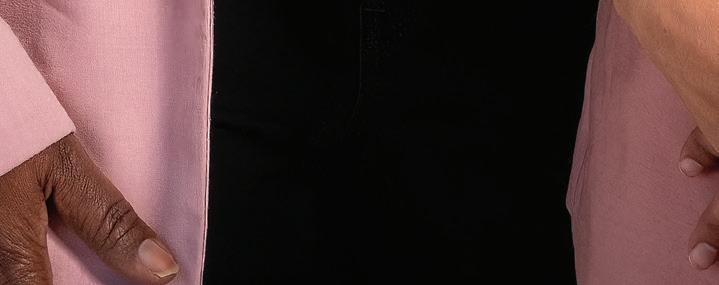




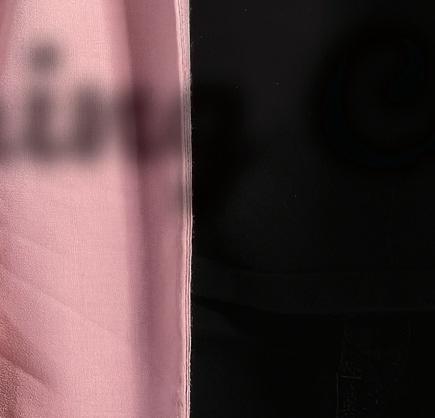



19 yalecancercenter.org | Yale Cancer Center
Fellws Bring Cmmunity Vice Into Research
Rosetta Washington, LMSW
Dawn White-Bracey
Jasmine Khubchandani, MD
Rosetta Washington and Dawn White-Bracey entered the Center for Community Engagement and Health Equity (CEHE) and Community Alliance for Research and Engagement (CARE) Community Research Fellowship Program at Yale Cancer Center with unknown expectations. Both women were seeking an enrichment opportunity and already had significant experience in community outreach. Thanks in part to their personal journeys with cancer, they brought new, unexpected perspectives, and left an indelible impression on their colleagues.
Launched in 2021, the nine-month fellowship program matches members of the community with one of ten Yale Cancer Center affiliated research groups or ‘host sites.’ The first few months provide training and educational workshops to introduce Community Research Fellows (CRFs) to basic cancer knowledge, patient-centered outcomes research, and community-based participatory research, followed by placement of CRFs into their research groups. The goal of the program is to provide research experience to community members, while developing relationships with Yale Investigators.
Leading in to their fellowships, Rosetta and Dawn both had great skillsets to share with their team. Rosetta, a licensed master social worker (LMSW), spent more than 12 years working with different populations within the Connecticut Departments of Corrections, Labor, and Children and Families. Dawn, a full-time realtor, is also President of Sisters’ Journey, a faith-based support group for breast cancer survivors, their family, and their friends.
They were matched with Principal Investigator, Rachel Greenup, MD, MPH, Associate Professor of Surgery (Oncology) and Chief of Breast Surgical Oncology, and National Clinician Scholars Program Research Fellow and general surgery resident, Jasmine Khubchandani, MD. Their study, the “Life After Mastectomy Study,” was designed to explore the lived experiences of women of color with breast cancer that lost a breast due to mastectomy and did not receive reconstruction, particularly as it relates to culture, community, and partnerships.
“There remains persistent racial and ethnic inequity in who gets postmastectomy reconstruction and Asian, Black, and Latina women consistently undergo reconstruction at lower rates compared to white women,” said Dr. Khubchandani. “We have a limited understanding of what life is like for women who have a mastectomy without reconstruction, and we hope our study will give us the information to better prepare women for life after surgery.”



For Rosetta, she readily admits this placement was not her first choice. At almost the same time she was selected for the fellowship, her sister was diagnosed with breast cancer, undergoing a double mastectomy and later, full reconstructive surgery. Rosetta was her primary caretaker and naturally this study topic hit close to home. However, she turned her personal experience into a positive.
“My sister actually joined the pilot and helped us finetune questions, and I used my own experience to tap into as I was interviewing participants,” explained Rosetta. “When they would ask, ‘How do you know about drains?’, I could share how I changed my sister’s drains. It helped

me form a connection with them on a personal level, and it helped me understand their experience.”










Breast cancer was also personal to Dawn. Her mother, Linda, passed away in 2003 after a second breast cancer diagnosis. Just four years earlier, Linda had started Sisters’ Journey to build a network of support for women with breast cancer and to encourage women to share their stories and to advocate for themselves and their health. Dawn has served as president for the last 12 years.
Dawn and Rosetta were embedded in the research team and became integral contributors. They met regularly with Drs. Greenup and Khubchandani to help get the project off the ground. Dawn, Rosetta, and Dr. Khubchandani trained to conduct interviews with breast cancer survivors under the guidance of Sakinah Carter Suttiratana, PhD, MPH, MBA, an Associate Research Scientist and Co-Director of CEHE. When it was time to recruit participants, Dawn and Rosetta’s connections to the community helped jumpstart the process.
Currently, Dawn and Rosetta focus their efforts on conducting interviews, but also meet regularly with the analysis team to help evaluate the results from interviews. “We were incredibly lucky to have had Dawn and Rosetta placed with our team,” said Dr. Khubchandani. “At the time that we were first paired together, we were still working on study design and how we were going to bring the voice of the community into the study. Once we connected, the synergy towards that goal was present almost immediately.”
“We could never have predicted the extent of the tangible and intangible benefits they brought to our
20 Yale Cancer Center | Year in Review 2023
group. We were thrilled to become a host site for the CRF Program, but to be placed with two incredible women with such unique, yet relevant personal experiences, has been a wonderful experience.”
While Dawn and Rosetta completed their official ninemonth term as CRFs, both agreed to stay on as consultants through June 2023 when Dr. Khubchandani completes her National Clinician Scholars Program Fellowship at Yale. Dr. Khubchandani will return to Massachusetts General
Hospital to finish her general surgery residency. Once that concludes, she intends to pursue a one-year Breast Surgical Oncology Fellowship to become a breast surgeon.






“I am the daughter of Indian immigrants and growing up in an ethnically and socioeconomically diverse community in Massachusetts, I was surrounded by people from many different backgrounds. When I started college at a homogenous school, I found all the layers of my identity in the minority,” said Dr. Khubchandani. “I became interested in how cultural identity shapes the way people navigate the world. After college, I found myself in a health policy and health disparities research assistant position. There I saw experts studying inequity in health outcomes for the first time. I realized that my passion for understanding human narrative and cultural identity could be channeled through research and scientific discovery. I entered medical school a year later committed to leveraging research to create a more equitable health care system.”
For Dawn, the fellowship provided valuable exposure to how research studies like this can impact her community. Like her non-profit work, a community-based study can give a voice to populations who may feel they are not heard. “I grew up intimidated by doctors, and we are constantly striving to empower women at Sisters’ Journey to advocate for themselves and break down that invisible barrier between doctor and patient. I’ve been given an opportunity to do amazing work, and I want to be able to share it. I am so proud to have been part of this effort.”
Life has almost come full circle for Rosetta. When the study concludes in June, it will have been one year since
her sister completed her breast cancer surgeries. Rosetta says she experiences the world much differently now. She says, “In our group, everyone was passionate about the work for their own reasons, and this experience has been especially rewarding. I have felt very fortunate to have had a seat at the table, both literally and figuratively. To have the opportunity to share my two cents on study question development with doctors and epidemiologists, and to be seated next to Dr. Marcella Nunez-Smith (Director of the Center of Community Engagement and Health Equity) one day at a lunch, hearing how she provides input to The White House and seeing her in that role as a woman of color; it has been a once-in-a-lifetime experience. Personally, this fellowship has led me to start exploring Research Associate openings at Yale.”
A critical takeaway from this research opportunity is how their work bridges the scientific world and the community. Explains Dr. Khubchandani, “I think it’s always important to remember and ask yourself, ‘What are we doing this for?’ We want to ultimately improve health equity and researchers will be able to better do that if they partner with the communities their research impacts. We can’t do it alone.”







“For our CRFs, I want them to continue to bridge the academic world with the local communities and continue to develop their voices. They both brought important perspectives to our research, and I can say I’m a better researcher because of them.”

“In ur grup, everyne was passinate abut the work for their wn reasns, and this experience has been especially rewarding. I have felt very fortunate to have had a seat at the table, both literally and figuratively.”
21 yalecancercenter.org | Yale Cancer Center
– Rosetta Washington
A large, new grant from the Breast Cancer Research Foundation will further analyze racial and ethnic disparities in breast cancer. Led by Eric Winer, MD, the project will be carried out by Leah Ferrucci, PhD, MPH, Assistant Professor of Epidemiology, Melinda Irwin, PhD, MPH, Susan Dwight Bliss Professor of Epidemiology, and Deputy Director of Yale Cancer Center, as well as Oncology Research Registered Dietitians Maura Harrigan, MS, RDN, CSO, and Courtney McGowan, MS, RD, CSO, CNSC, CD-N.
“Breast cancer survival rates have improved 50 percent,” said Dr. Irwin, “but that isn’t true by race and ethnicity. For example, breast cancer mortality is about 40% greater in Black women compared to non-Hispanic whites. While Latina women have lower risk of breast cancer-specific mortality than white women, breast cancer remains the leading cause of cancer death among Latinas and they are more likely to be diagnosed with regional or distant breast cancer and tumors with worse prognosis compared to whites. The work Dr. Ferrucci and I have done has shown that some of this is due in part to lifestyle factors related to weight, diet, and exercise.” Risk of developing fourteen different cancers, including breast cancer, is associated with obesity.







The new study will extend the scientists’ previous work on the links between breast cancer and lifestyle factors such as obesity, and how outcomes can be improved through an intervention program of weight loss, exercise, and dietary changes. But this time, Drs. Ferrucci and Irwin will concentrate on Black and Latina women, who have been understudied in this area. There will also be careful attention paid to how socioeconomic status could be a potential barrier to participating in a healthy eating and exercise intervention for some study participants.
“There are structural issues at play that track with socioeconomic status,” said Dr. Ferrucci. “Things like access to food. Is there a grocery store within reach to get fresh fruit and vegetables? The cost of food has skyrocketed, and as prices go up, people on a limited budget are going to purchase radically different types of food. Or what if they want to go out and exercise in their neighborhood but don’t feel safe, even to take a walk?”
Language, too, has been a barrier. In previous studies the scientists had to limit enrollment to English-speaking participants due to lack of resources to translate the intervention. In addition, they did not have Spanishspeaking dietitians who could manage the intervention program. That may change for the new study.


They hope to identify barriers and challenges through interviews and a survey sent to all female patients who have been diagnosed with breast cancer in the last five years. The survey will ask about barriers to eating healthy and exercising. Drs. Ferrucci and Irwin also will talk to Black and Latina women who participated in their earlier studies, to learn what the women did or didn’t like about the existing program.
“All those data will help us to better design an intervention that will be most appropriate for these study participants,” said Dr. Ferrucci.
“We want to understand directly from them what to build into this intervention to support them in making these lifestyle changes, which could include systems-level changes in oncology care,” said Dr. Irwin.
They plan to begin recruiting participants for the intervention study later in 2023 by working with referring physicians and community organizations, with the goal of eventually enrolling 150 Black and Latina women
diagnosed with breast cancer into the intervention component of their research.

They expect benefits to be similar to those found in their previous trials, where exercise and healthy eating led to weight loss and better cancer outcomes. Dr. Ferrucci would not be surprised if the intervention had an even bigger effect in this group. Dr. Irwin agrees. “Some observational research suggests exercise and diet may be more strongly associated with survival among Black and Latina women with breast cancer,” she said. “The underlying hypothesis is that you could see a stronger impact in these populations in an intervention setting.”

22 Yale Cancer Center | Year in Review 2023



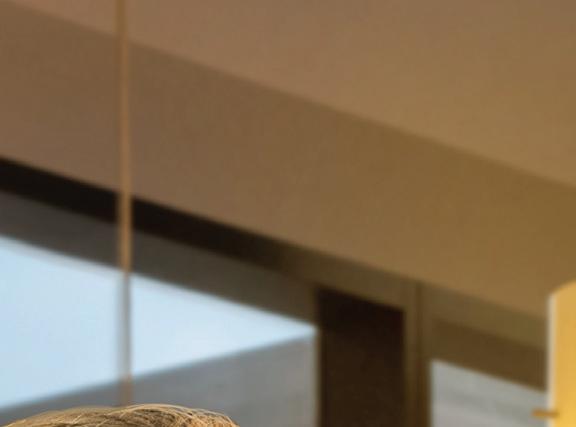

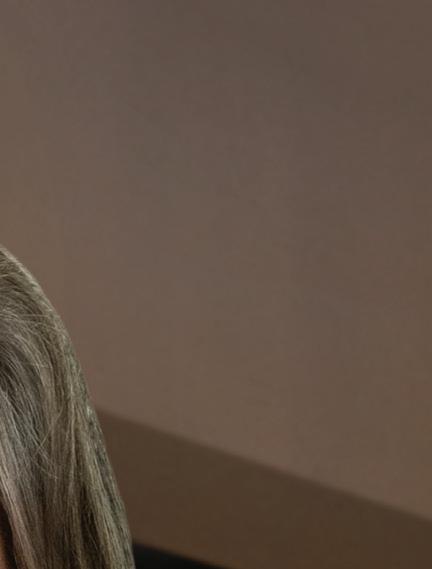



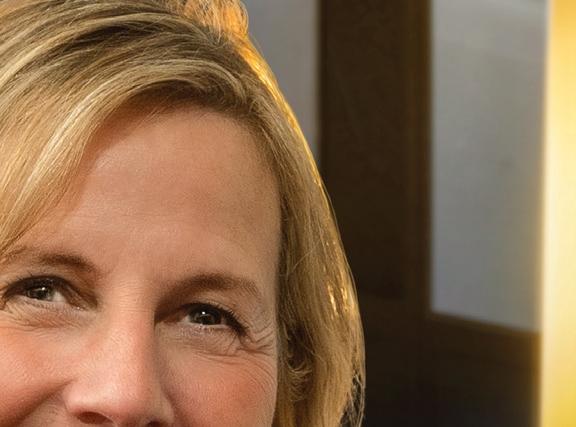
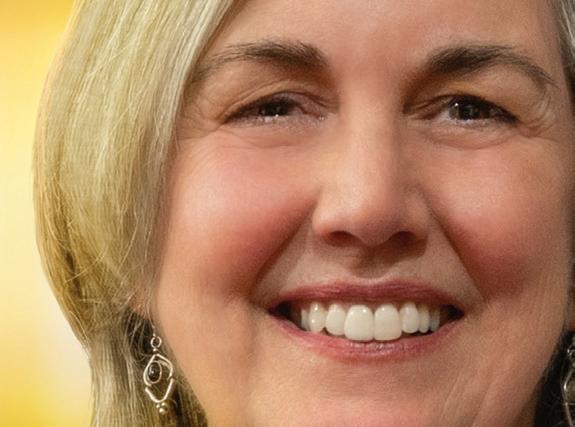
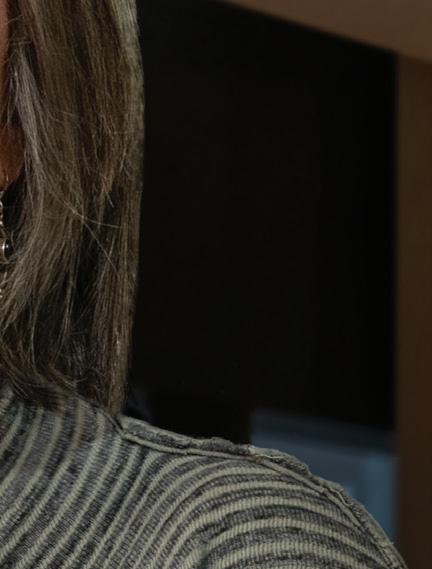


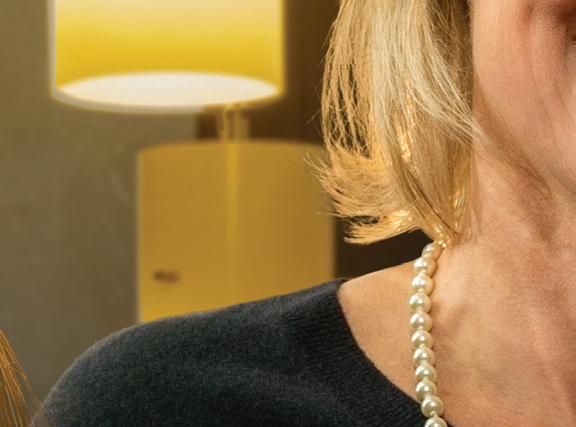
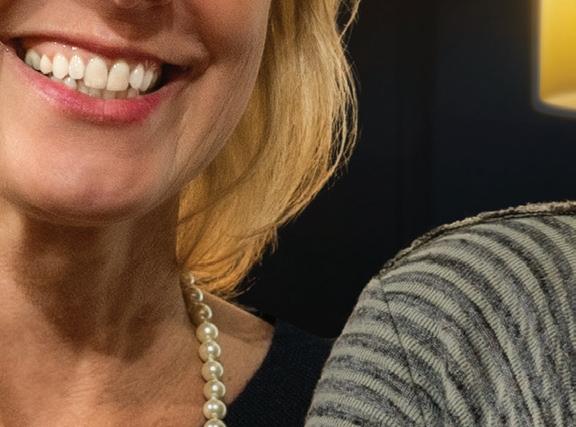


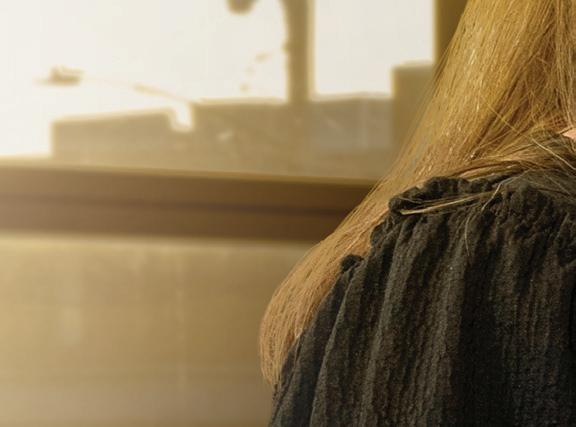








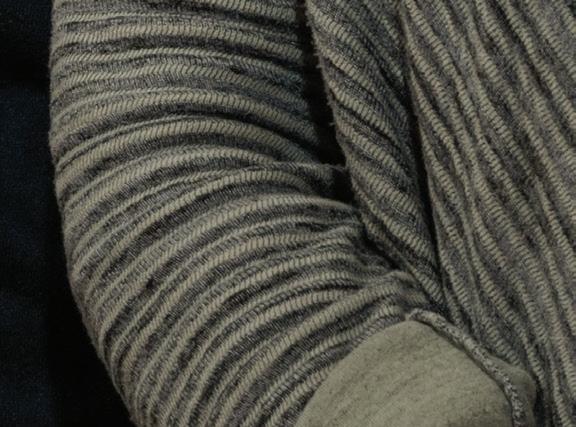

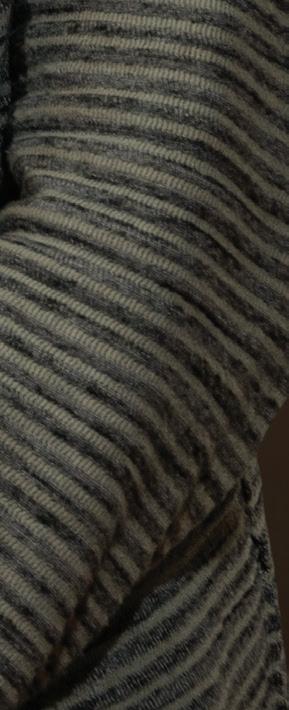






 Leah Ferrucci, PhD, MPH
Melinda Irwin, PhD, MPH
Leah Ferrucci, PhD, MPH
Melinda Irwin, PhD, MPH
Addressing Disparities in Breast Cancer 23 yalecancercenter.org | Yale Cancer Center
Maura Harrigan, MS, RDN, CSO
Taking A Deeper Look at Lung Cancer Screening















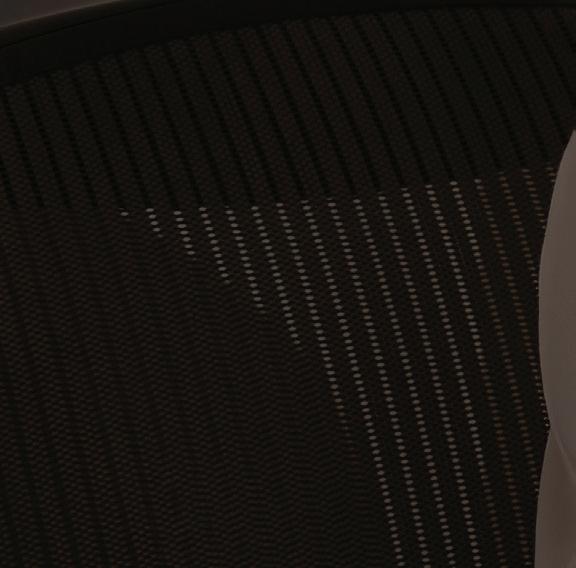



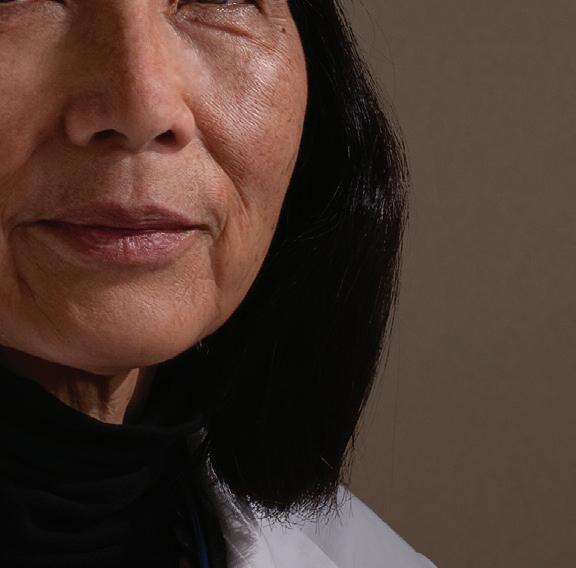

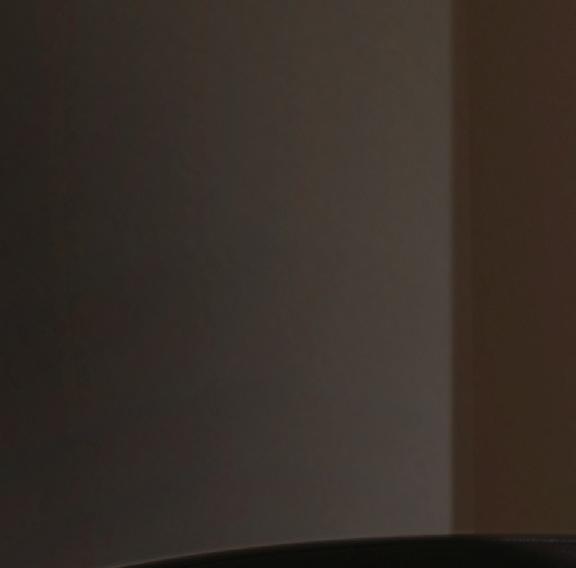




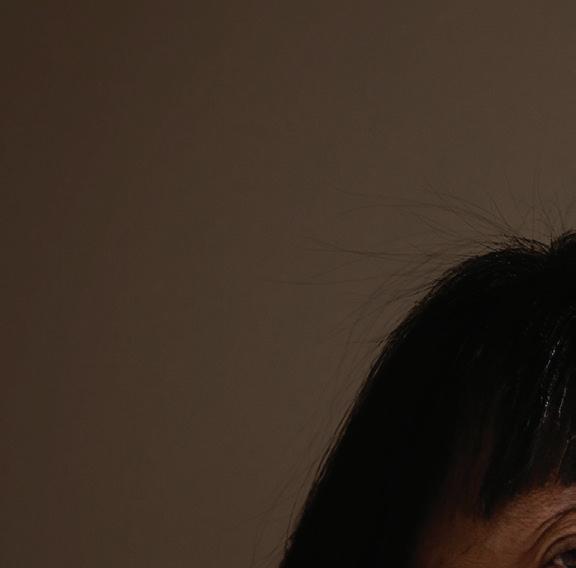
 Lynn Tanoue, MD, MBA
Lynn Tanoue, MD, MBA
24 Yale Cancer Center | Year in Review 2023
Lung cancer is the most lethal form of cancer, killing 150,000 Americans and 1.8 million people worldwide in 2022. The cancer is often diagnosed late when survival is less likely. Yet these mortality figures could be significantly lowered by using a simple preventative tool—lung cancer screening (LCS)—that could detect the disease in its early phase.
Two related facts recently caught the attention of Yale researchers. First, the pool of people eligible for LCS was expanded in March 2021 and now includes between 14 million to 15 million Americans, but only 10 percent of them are being screened. Second, lung cancer hits Black males harder than any other group, striking them at a younger age, with a shorter history of smoking, and with greater lethality compared to white patients. The Yale researchers did a metaanalysis to investigate the relationship between race and participation in lung cancer screening. It is the first systematic review of this understudied subject.
They found that Blacks are less likely to get LCS than whites, despite being at greater risk. “The main result wasn’t surprising,” said Yukiko Kunitomo, MD, the paper’s first author, who conducted the research while at Yale and is now a fellow at Johns Hopkins University. “But the fact that there are still very limited studies looking at this issue and very little data was surprising.”



The lack of data stems from the low rates of inclusion of racial minorities in clinical trials focused on this issue. For instance, the National Lung Screening Trial, one of the largest ever done, had more than 53,000 participants, only 4.5 percent of whom were Black.
“Another important finding,” said co-author Lynn Tanoue, MD, MBA, Professor of Medicine (Pulmonary) and Director of the Lung Cancer Screening Program at Yale, “is that even when there were abnormal findings on the CT
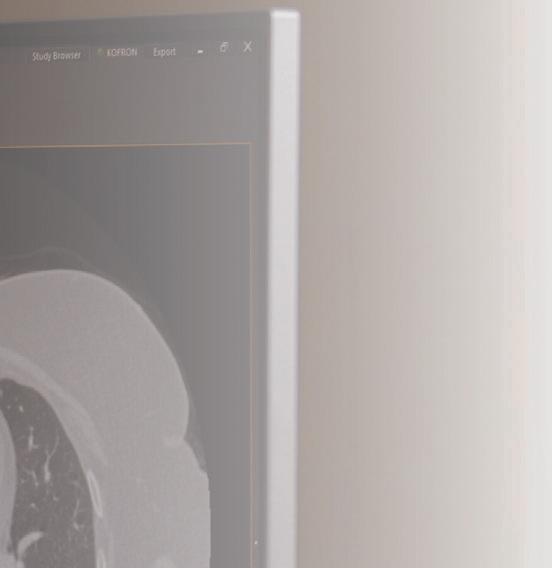
scans, the follow-up for African Americans was not as good.” Black patients were 33 percent less likely to follow-up than whites. “The disparity persisted,” added Dr. Kunitomo.
The researchers attribute the low follow-up to several things related to racial disparities, including the usual suspects: social and demographic factors such as access to care, transportation, ability to take time off from a job, and fears about the cost of treatment. Dr. Kunitomo also points out that getting a potential diagnosis of cancer is scary and stressful, especially if the patient does not have a strong relationship with a primary healthcare provider. Some providers are not diligent about following up. Patients also may believe, incorrectly, a lung cancer diagnosis is a death sentence, which they don’t want to hear.
“So, we have a lot of educating to do,” said Dr. Tanoue, “from patients to physicians to the larger community.” For instance, patients and physicians need a better understanding of the test itself, which takes five minutes, is safe and painless, without anesthesia or bloodwork, and saves lives by detecting lung cancer early.
The screening has been recommended for eligible patients since 2013, yet participation rates remain stubbornly low. Some of the reasons have already been mentioned, but others can be traced to the healthcare side. For instance, the criteria for eligibility are strict and lengthy. The provider elicits a detailed smoking history—how much the patient smoked, for how long, whether they started and stopped, and when they quit. “Getting all of this information takes a lot of time,” explained Dr. Kunitomo, “and even if it’s put into an electronic record, it can’t be as easily extracted or automated as with other types of screening.”


Dr. Tanoue agrees. She describes the electronic record system at Yale New Haven Health, called EPIC, as
“cumbersome and time-consuming,” and notes that it doesn’t flag a patient who is eligible for screening or send an alert to the primary provider, which is common for patients needing mammograms or colonoscopies, the standard screenings that have saved countless lives. The hospital’s IT team is working on the problem and so is EPIC. “We need to make it easier for providers to think about screening, to order it, and for patients to get it done,” said Dr. Tanoue.
The researchers also reported that only 47 to 58 percent of providers are knowledgeable about the guidelines for eligibility. It is difficult for primary providers to stay on top of every kind of screening, which is why an automated alert would be so helpful. The researchers also want to urge providers to make an annual LCS part of routine care for some patients.
These improvements are crucial, they add, because their study also revealed that when patients get referred for a scan, the disparities between races almost disappear. “When providers refer people,” said Dr. Kunitomo, “you see an equal proportion getting scans.”
“We’re now trying to educate the primary care providers who are going to be ordering these screens to cast the net wider and be more inclusive of African-Americans and women,” said Dr. Tanoue. “Cancer screening is an important topic on everybody’s radar now, because the benefit can be so enormous.”

25 yalecancercenter.org | Yale Cancer Center
Using genetic sequencing, researchers are identifying the total number of mutations in a tumor, and developing a biomarker called the tumor mutational burden, or TMB. Ten or more mutations within a tumor per megabase is considered a high TMB. Three years ago, a trial done across tumor types showed that patients with a high TMB are more likely to respond to immunotherapy (Marabelle et al. 2020). That study led the FDA to approve TMB as a biomarker for such treatments.
But what if the genetic tests that measure TMB are misleading or incorrect for some patients? If a patient’s TMB is wrongly scored, what are the possible consequences? These questions are addressed in a recent eye-opening study by Amin Nassar, MD, clinical fellow at Yale Cancer Center.


“The problem with that trial,” said Dr. Nassar, “is that more than 95 percent of the patients were white. We need to step back and ask, number one, how does this biomarker perform in patients who are non-white; and number two, are there technical issues with the way this biomarker has been studied?”



The most accurate way to determine TMB is to genetically sequence samples from both the patient’s tumor and the patient’s normal tissue, a process called tumor-normal sequencing. Genetic analysis can then differentiate mutations specific to the tumor from germline mutations inherited by patients. For an accurate TMB, inherited mutations must be excluded from the count.
The trial that the FDA relied upon to approve TMB as a biomarker used a testing platform that was tumor-only, meaning that the patients’ normal tissue wasn’t sequenced. “So, we can’t tell if the mutations used to determine the TMB are coming only from the tumor or if the samples also include mutations the patient was born with,” Dr. Nassar explained.


To estimate a patient’s TMB, tumor-only platforms try to filter out germline mutations by comparing the genetic data from the patient’s tumor with genetic information drawn from large public databases, not from the same patient’s normal tissue. But Dr. Nassar points out that 80 to 85 percent of the samples in those databases are from white patients, a population whose typical inherited mutations have been characterized far more comprehensively than those of non-white populations. “As a scientific community, we’ve done a better job at filtering out germline mutations in white patients,” he said, “because we have invested more in knowing more about white patients.”
Dr. Nassar wondered if the TMBs of the few non-white patients in the trial included false positives from germline mutations, inflating their TMB scores. To test this, he and his colleagues used databases that included both tumor-only and tumor-normal samples for patients of both European and non-European ancestry. They measured TMB in two ways, using tumor-only sequencing and tumor-normal sequencing that filtered out an individual patient’s germline mutations.
The discrepancy between the scores was striking. “The biggest surprise was the extent of the misclassification. Using tumor-only sequencing, more than 35 percent of Blacks and Asians were misclassified as TMB-high, when in fact they were TMB-low. There was some miscalculation in the white population as well, but way less,” he said. “If you look at 100 patients, 21 whites would be misclassified as high when they are actually low, 37 Asians would be misclassified, and 44 Blacks. That’s a big number, especially since we know that this biomarker is used to guide cancer management across certain cancer types treated with immunotherapies.”
The false positives from the germline could be eliminated by sequencing samples from normal tissue as well as the













tumor. “We haven’t characterized the normal mutation landscape very well in Blacks and Asians, so the databases do not perform as well in filtering out the false positives from tumor-only estimates of TMB. This is causing us to overestimate TMB more so in Blacks and Asians than in whites.”
Dr. Nassar and his colleagues developed an algorithm that recalibrates tumor-only estimates of TMB by considering ancestry and cancer type. Tests across two large patientgroups confirmed that the algorithm more accurately classified tumor-only data. The recalibration tool will be valuable where tumor-only sequencing is still the standard. Yale uses the gold standard, said Dr. Nassar, sequencing both the tumor and normal tissue for every patient, which removes the necessity for recalibration. As the cost of sequencing drops, Dr. Nassar expects more cancer centers to follow Yale’s example.
Miscalculation of TMB can have serious consequences. If a physician treats a patient with immunotherapy based on a falsely high TMB, the patient is not only less likely to benefit but may suffer severe side effects. The therapy is not only less effective, but also very expensive.
Dr. Nassar’s group also made another surprising finding. “For Asians and Blacks, unlike for whites, TMB didn’t pan out as a useful biomarker,” he said. That doesn’t mean TMB should be discarded for non-whites, he continued. Rather, it needs to be refined by better data—first, by sequencing every patient’s normal tissue; second, by placing greater focus on sequencing the human genome for Blacks and Asians; and third, by including a greater diversity of genetic backgrounds in clinical trials.
26 Yale Cancer Center | Year in Review 2022



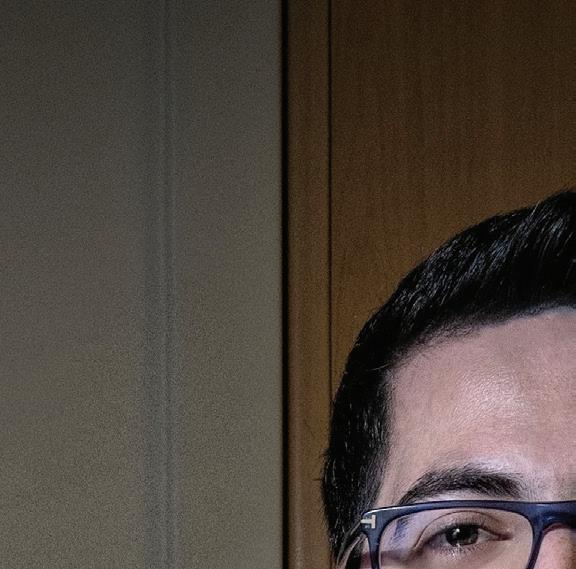
























Amin Nassar, MD Discrepancies in Biomarker Burden 27 yalecancercenter.org | Yale Cancer Center
Pulling Back the Curtain on Surgical Disparities





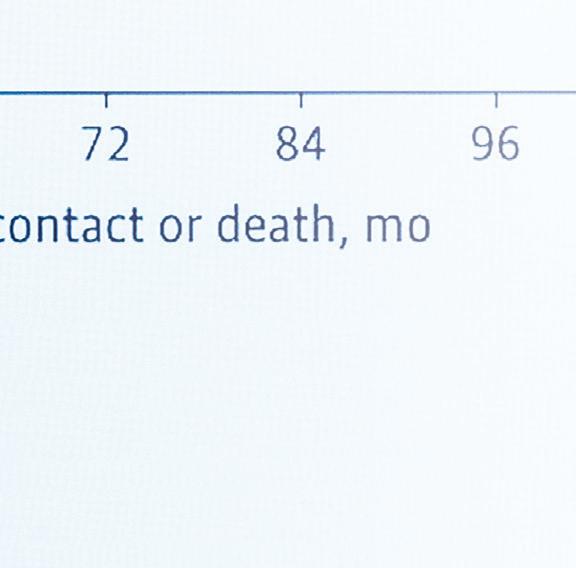
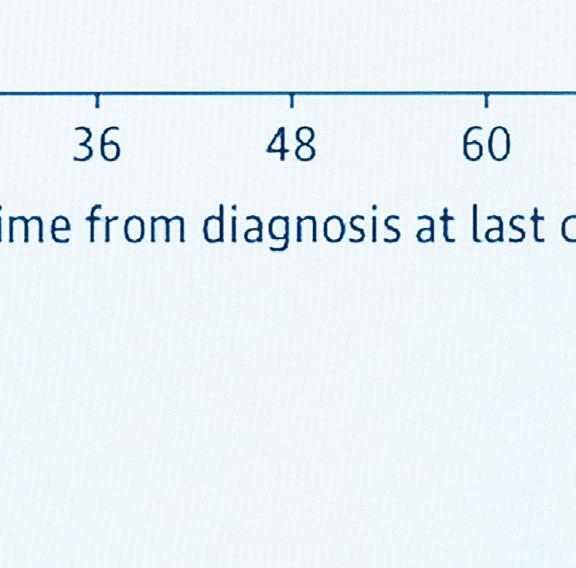
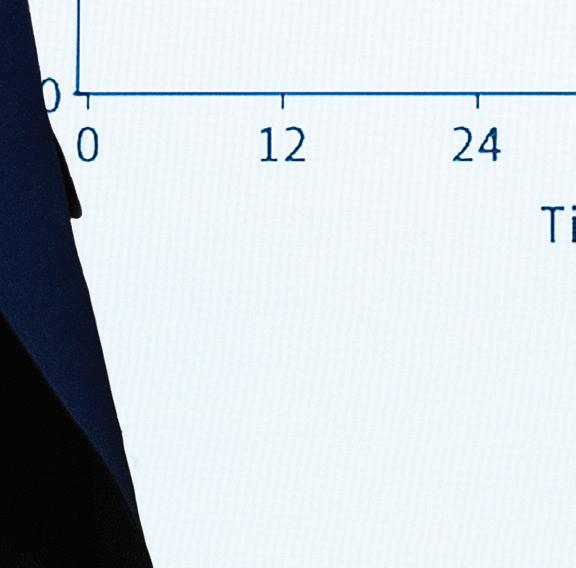














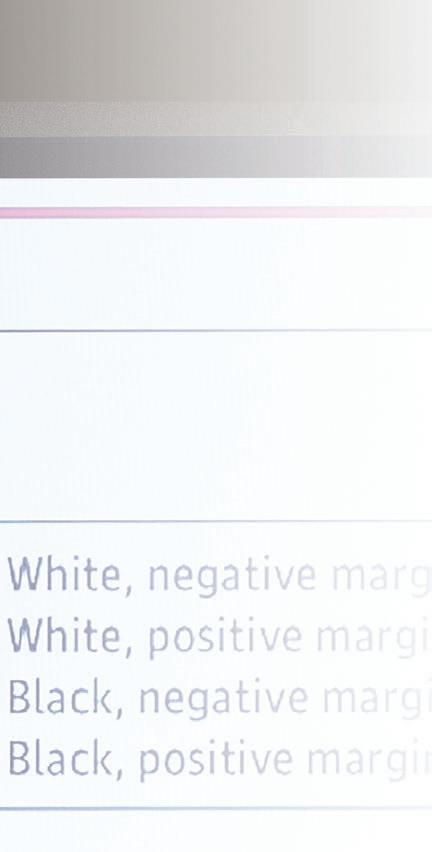



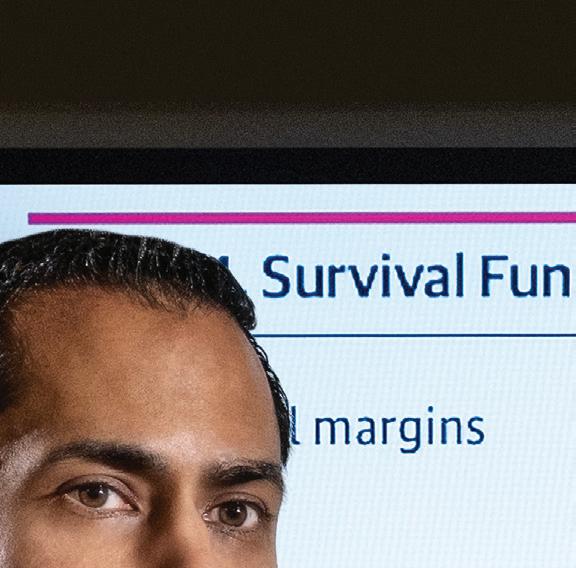
 Sajid Khan, MD
Sajid Khan, MD
28 Yale Cancer Center | Year in Review 2023
The COVID-19 pandemic resulted in the surfacing of the best and the worst of the healthcare system and many developments and discoveries, one being confirmation of what many in the field have known for decades: that when it comes to serious illness in the United States, non-white patients are more likely to die than white patients.








Buoyed by the strong foundation of the Center for Gastrointestinal Cancer at Smilow Cancer Hospital and Yale Cancer Center and the Yale Department of Surgery, Sajid Khan, MD, Associate Professor of Surgery (Oncology) and Section Chief of Hepatopancreatobiliary & Mixed Tumors, took a deeper dive into the surgical care of gastrointestinal (GI) cancers to see what he could uncover within his own field. Utilizing the National Cancer Database, he sought to evaluate racial disparities in quality of care for patients with GI cancers treated with surgery. What he found was both expected, and shocking. His results were published in JAMA Network Open.
“The motivation for our study was to understand potential drivers behind worse survival outcomes among Black patients with gastrointestinal tract cancer and determine whether variations in quality of surgical and perioperative care are underlying,” explained Dr. Khan. His clinical practice specializes in the surgical management of patients with benign and malignant tumors of the liver, pancreas, bile ducts, gallbladder, stomach, and colon.
The National Cancer Database is a nationwide oncology outcomes database that is representative of 70% of the population diagnosed with an invasive cancer. GI cancer accounts for 26% of cancers globally and 35% of all cancerrelated mortality, representing a large cancer burden nationally. Black patients have a disproportionate burden compared with white patients, with a 19% excess risk of cancer death for men and 13% for women. His team began by analyzing over
550,000 patient samples from adults with gastrointestinal cancer undergoing surgical resection between 2004 and 2017 looking for three main findings: rates of negative margins, adequate lymphadenectomy, and delivery of post-operative adjuvant therapy.
The results Dr. Khan did anticipate from his retrospective cohort study titled Evaluation of Racial Disparities in Quality of Care for Patients With Gastrointestinal Tract Cancer Treated With Surgery, were that Black patients were less likely than white patients to have ‘negative surgical margins,’ in which no cancer cells are found in the border of tissue removed during surgery (29% lower in surgeries on the esophagus and rectum and 25% in the bile ducts), and they were also less likely to have adequate lymph node removal during surgery (29% lower in the small intestine, 28% in the esophagus, 11% in the colon, and 10% in both pancreas and rectosigmoid). The study also showed similar disparate outcomes for American Indian patients compared to white patients.
“What I did not anticipate and found alarming, is that if chemotherapy is indicated after surgery, Black patients were less likely to be referred for chemotherapy, or to receive it, compared to white patients. This was also the case for radiation therapy,” said Dr. Khan. “This is a striking finding considering there was no difference between Black and white patients in their desire to have adjuvant chemotherapy or radiation therapy. In other words, both patient populations were equally likely to want or not want adjuvant care after surgery. Seeing no obvious difference in patient desire, it begs the question, why are Black patients not being administered standard of care postoperative treatment? Especially when we know that adjuvant therapies can prolong cancer survival.”
Dr. Khan sees this study as a jumping off point for further research into why exactly this is happening, and what can be
done. Is it an inherent and unconscious bias among medical providers that can be addressed with more training and communication, or is this something that can only be fixed with funding of more research and assuring clinical trials and the workforce reflect the diverse population?

“We are currently looking at our own catchment area taking advantage of our expertise and large patient volume to try and answer some of these questions. Tumor biology cannot be ignored, and we (Dr. Khan’s lab is working in collaboration with Caroline Johnson, PhD, Associate Professor of Epidemiology, and Jun Lu, PhD, Associate Professor of Genetics) have found differences exist in tumor biology based on ethnicity/race and sex. However, the disparities in cancer outcomes for underrepresented minorities is not simply a matter of tumor biology, but also a breakdown in our healthcare system and how we see patients.”
According to Dr. Khan, Yale has a great opportunity to be a leader in this research that can then be extrapolated to a national level. While the focus of this study was GI cancers, that is not to say this isn’t the case in other disciplines and cancers as well. “Research universities and healthcare systems need to engage community leaders of underrepresented racial and ethnic groups in quality improvement campaigns, including calling out evidence of the disparate treatment of patients of color, as well as work to recruit and maintain underrepresented minorities.”
“While these findings are important, they are just the start of a much larger conversation. This study brings awareness to the topic and backs it up with data. However, more investigation is needed to really pinpoint the multifactorial causes. As of now, a great start is learning to listen and respond to what patients actually say. This could be a simple, yet powerful, antidote to bias.”
29 yalecancercenter.org | Yale Cancer Center
Yale Cancer Center and Smilow Cancer Hospital Leadership
Yale Cancer Center

Eric P. Winer, MD Director
Louis R. Chênevert
Co-Chair, Director’s Council
Roslyn Milstein Meyer, PhD
Co-Chair, Director’s Council

Daniel C. DiMaio, MD, PhD
Deputy Director
Roy S. Herbst, MD, PhD
Deputy Director
Melinda L. Irwin, PhD, MPH
Deputy Director
Margaret H. Gilshannon, MHA
Deputy Director, Finance & Administration
Barbara Burtness, MD
Chief Translational Research O cer
Associate Director, Translational Research
Ian Krop, MD, PhD
Chief Clinical Research O cer
Associate Director, Clinical Research
Nita Ahuja, MD, MBA

Associate Director, Surgical Sciences
Anne Chiang, MD, PhD
Associate Director, Clinical Initiatives
Edward Kaftan, PhD
Associate Director, Research A airs
Megan C. King, PhD
Associate Director, Basic Science
Harriet M. Kluger, MD
Associate Director, Education, Training & Faculty Development
Patricia M. LoRusso, DO, FASCO
Associate Director, Experimental Therapeutics

Marcella Nunez-Smith, MD, MHS Associate Director, Community Outreach and Engagement
David F. Stern, PhD Associate Director, Shared Resources and Developmental Funds
Sanjay Aneja, MD Assistant Director, Bioinformatics
Veda Giri, MD Assistant Director, Clinical Cancer Genetics
Edward Snyder, MD Assistant Director, Membership
Marcus Bosenberg, MD, PhD Director, Center for Immuno-Oncology
Stephanie Halene, MD, PhD Director, The DeLuca Center for Innovation in Hematology Research
Mark Lemmon, PhD, FRS Director, Cancer Biology Institute
Markus Müschen, MD, PhD Director, Center of Molecular and Cellular Oncology
Marcella Nunez-Smith, MD, MHS Director, Center for Community Engagement and Health Equity
Smilow Cancer Hospital
Eric P. Winer, MD Physician-in-Chief
Lori Pickens, MHA
Senior Vice President and Executive Director
Kevin G. Billingsley, MD, MBA, FACS
Chief Medical O cer
Kim Slusser, MSN, RN, CHPN, NEA-BC
Vice President, Patient Services
Kevin Vest, MBA, FACHE



Vice President, Centers of Excellence
Marcella Nunez-Smith, MD, MHS
Chief Health Equity O cer & Deputy Chief Medical O cer
Mehra Golshan, MD, MBA, FACS
Deputy Chief Medical O cer for Surgical Services
Jeremy Kortmansky, MD
Chief Network O cer & Associate Chief Medical O cer
Sarah Schellhorn, MD
Chief Ambulatory O cer

Tara B. Sanft, MD
Chief Patient Experience O cer
Lynn Wilson, MD, MPH, FASTRO
Deputy Chief Medical O cer for Therapeutic Radiology
Sonia Grizzle
Executive Director, Administration
30 Yale Cancer Center | Year in Review 2023
Yale Cancer Center Research Programs
Cancer Immunology
Marcus Bosenberg, MD, PhD
Carla Rothlin, PhD
Mario Sznol, MD
Cancer Prevention and Control
Michaela Dinan, PhD
Xiaomei Ma, PhD
Cancer Signaling Networks
Isaac Y. Kim, MD, PhD, MBA
Don Nguyen, PhD
Katerina Politi, PhD
Developmental Therapeutics
Karen S. Anderson, PhD
Barbara A. Burtness, MD

Genomics, Genetics, and Epigenetics
Lajos Pusztai, MD, DPhil
Jeffrey Townsend, PhD
Qin Yan, PhD
Radiobiology and Genome Integrity
Joseph N. Contessa, MD, PhD
Megan C. King, PhD
Yale Cancer Center Shared Resources
Biostatistics and Bioinformatics
Shuangge Steven Ma, PhD
Cesium Irradiator







Zhe Jay Chen, PhD
Clinical Research Services
Ian Krop, MD, PhD
Associate Cancer Center Director for Clinical Research Medical Director, Clinical Trials O ce
Alyssa Gateman, MPH, CCRP
Executive Director, Clinical Trials O ce Stacey Stein, MD
Assistant Medical Director, Clinical Trials O ce
Neal Fischbach, MD
Assistant Medical Director, Care Center Network
Stephanie Halene, MD, PhD
Assistant Medical Director, Clinical Research Support Laboratory
Amer Zeidan, MD
Assistant Medical Director, Heme Malignancies
Flow Cytometry
Ann Haberman, PhD
Pathology Tissue Services
David Rimm, MD, PhD
Rapid Case Ascertainment
Rajni Mehta, MPH
Yale Center for Genome Analysis
Shrikant Mane, PhD
Yale Center for Molecular Discovery
Craig Crews, PhD
31 yalecancercenter.org | Yale Cancer Center
Yale Cancer Center Membership


Cancer Immunology
Stephan Ariyan
Philip Askenase
Jeffrey Bender
Marcus Bosenberg
Alfred Bothwell
David Braun
Richard Bucala
Grace Chen
Lieping Chen
Joseph Craft
Peter Cresswell
William Damsky
Vishwa Deep Dixit
Richard Edelson
Brinda Emu
Richard Flavell
Francine Foss
Jorge Galan
Michael Girardi
Earl Glusac
Ann Haberman
David Hafler
Douglas Hanlon
Stavroula Hatzios
Jeanne Hendrickson
Kevan Herold
Andres Hidaldo
Ya-Chi Ho
John Hwa
Jeffrey Ishizuka


Akiko Iwasaki
Nikhil Joshi
Paula Kavathas
Steven Kleinstein
Smita Krishnaswamy
Priti Kumar
Mark Lee
Jonathan Leventhal
Carrie Lucas
Stacy Malaker
Mark Mamula
Jennifer McNiff
Ruslan Medzhitov
Kathryn Miller-Jensen
Dennis Moledina
Ruth Montgomery
Walther Mothes
Markus Müschen
Kelly Olino
Noah Palm
Tristen Park
Joao Pereira
Jordan Pober
Anna Marie Pyle
Aaron Ring
Carla Rothlin
Nancy Ruddle
Kurt Schalper
David Schatz
Stuart Seropian
Alexa Siddon
Brian Smith
Edward Snyder
Xiaolei Su
Mario Sznol
Peter Tatersall
Robert Tigelaar
John Tsang
Kiran Turaga
Mary Tomayko
Thuy Tran
Juan Vasquez
Gavitt Woodard
Xiong Yong
Tianxiang Zhang
Cancer Prevention and Control
Fuad Abujarad
Kerin Adelson
Kathleen Akgun
Prasanna Ananth
Harry Aslanian
Haripriya Ayyala
Laura Baum
Elizabeth Berger
Kevin Billingsley
Krysten Bold
Susan Busch
Paris Butler
Brenda Cartmel
Anees Chagpar
Elizabeth Claus
Nicole Deziel
Michaela Dinan
Leah Ferrucci
Lisa Fucito
Jacquelyne Gaddy
Courtney Gibson
Veda Giri
Mehra Golshan
Rachel Greenup
Cary Gross
Raul Hernandez-Ramirez
Yuan Huang
Scott Huntington
Melinda Irwin
Caroline Johnson
Beth Jones
Benjamin Judson
Amy Justice
Manisha Juthani-Mehta
Jennifer Kapo
M. Tish Knobf
Grace Kong
Suchitra Krishnan-Sarin
Donald Lannin
Michael Leapman
Ira Leeds
Lingeng Lu
Maryam Lustberg
Shuangge Ma
Xiaomei Ma
Asher Marks
Sherry McKee
Saral Mehra
Rajni Mehta
Anne Mongiu
Linda Niccolai
Marcella Nunez-Smith
Stephanie O’Malley
Jennifer Ogilvie
Elijah Paintsil
Haddon Pantel
Cancer Signaling Networks
Anna Arnal Estape
Anton Bennett
Titus Boggon
David Breslow
Guoping Cai
David Calderwood
Gary Desir
Michael DiGiovanna
Rong Fan
Kathryn Ferguson
Carlos Fernandez-Hernando
Clare Flannery
Ellen Foxman
John Geibel
Sourav Ghosh
Valentina Greco
Julie Hens
Mark Hochstrasser

Robert Homer
Valerie Horsley
Won Jae Huh
Peter Humphrey
Michael Hurwitz
Karl Insogna
Richard Kibbey
Isaac Kim
Joseph Kim
Daryl Klein
Anthony Koleske
Shalin Kothari
TuKiet Lam
Francis Lee
Jaewoong Lee


Mark Lemmon
Andre Levchenko
Jun Liu
Yansheng Liu
Michael Mak
Darryl Martin
Jon Morrow
Peggy Myung
Michael Nathanson
Don Nguyen
Rachel Perry
Daniel Petrylak
Katerina Politi
David Rimm
Jesse Rinehart
Hermine Poghosyan
Bohdan Pomahac
Elizabeth Prsic
Vinay Rao
Elena Ratner
Ilana Richman
Harvey Risch
Rozalyn Rodwin
Joseph Ross
Peter Salovey
Tara Sanft
Sarah Schellhorn
Sangini Sheth
Andrea Silber
Mehmet Sofuoglu
Donna Spiegelman
Sakinah Suttiratana
Tamar Taddei
Jamie Tam
Monica Valero
Alla Vash-Margita
Sten Vermund
Shi-Yi Wang
Wei Wei
Xiao Xu
Yong Zhu
Matthew Rodeheffer
Harold Sanchez
Joseph Schlessinger
Martin Schwartz
Gerald Schulam
David Stern
Edward Stites
Yajaira Suarez
Kaelyn Sumigray
Derek Toomre
Benjamin Turk
Evan Vosburgh

Robert Weiss
Kenneth Williams
Dianqing (Dan) Wu
Min Wu
John Wysolmerski
Xiaoyong Yang
Yang Yang-Hartwich
Xuchen Zhang
32 Yale Cancer Center | Year in Review 2023
Developmental Therapeutics
Karen Anderson
Masoud Azodi
Joachim Baehring
Aarti Bhatia
Kim Blenman
Nicholas Blondin
Ronald Breaker
Barbara Burtness

Michael Cecchini
Herta Chao
Yung-Chi Cheng
Anne Chiang
Zachary Corbin
Jason Crawford
Craig Crews
Henk De Feyter
Hari Deshpande
Vincent DeVita
Dan DiMaio
Barbara Ehrlich
Jonathan Ellman
Donald Engelman
Tarek Fahmy
James Farrell
Scott Gettinger
Sarah Goldberg
Andrew Goodman
Lohith Gowda
Ya Ha
Navid Hafez
Roy Herbst
Seth Herzon
Iris Isufi
William Jorgensen
Patrick Kenney
Harriet Kluger
Jeremy Kortmansky
Ian Krop
Pamela Kunz
Nita Ahuja
Claudio Alarcon
Arnand Augert

Mathieu Bakhoum
Allen Bale
Susan Baserga
Kim Blenman
Demetrios Braddock
Sidi Chen
Keith Choate
James Clune
Andrew Dewan
Allison Didychuk
Nadya Dimitrova
Zeynep Erson Omay
Mark Gerstein
Antonio Giraldez
Murat Gunel
Shangqin Guo
Ruth Halaban
Stephanie Halene
Gloria Huang
Anita Huttner
Farren Issacs
Dhanpat Jain
Lucia Jilaveanu
Samuel Katz
Sajid Khan
Kenneth Kidd
Yuval Kluger
Christine Ko
Diane Krause
John Kunstman
David Leffell
Bluma Lesch
Peining Li
Haifan Lin
Chen Liu
Yang Liu
Xavier Llor
Jun Lu
Charles Lusk
Radiobiology and Radiotherapy
Sanjay Aneja
Ranjit Bindra
Justin Blasberg
Franziska Bleichert
Daniel Boffa
Douglas Brash
Zhengxin Cai

Richard Carson
Sandy Chang
Zhe Chen
Veronica Chiang
John Colberg
Daniel Coman
Joseph Contessa
Shari Damast
Roy Decker
Jun Deng
Frank Detterbeck
James Duncan
Luisa Escobar-Hoyos
Suzanne Evans
Peter Glazer
Fanqing Guo
James Hansen
Jill Lacy
Alfred Lee
Brett Lindenbach
Dieter Lindskog
Elias Lolis
Patricia LoRusso
David Madoff
Scott Miller
Jennifer Moliterno Gunel
Viswanathan Muthusamy
Natalia Neparidze
Antonio Omuro
Terri Parker
Farzana Pashankar
Pasquale Patrizio
Joseph Piepmeier
Nikolai Podoltsev
John Roberts
Michal Rose
William Mark Saltzman
Alessandro Santin
William Sessa
Rory Shallis
David Spiegel
Preston Sprenkle
Stacey Stein
Shrikant Mane
I. George Miller
Binyam Mogessie
Michael Murray
Mandar Muzumdar
Sigrid Nachtergaele
Karla Neugebauer
James Noonan
Curtis Pickering
Manoj Pillai
Manju Prasad
Lajos Pusztai
Nallakkandi Rajeevan
Ansley Roche
Mariya Rozenblit
Peter Schwartz
Emre Seli
Anup Sharma
Jason Sheltzer

Jeffrey Sklar
Zachary Smith
Joan Steitz
Hugh Taylor
Toma Tebaldi
Jeffrey Townsend
Zenta Walther
He Wang
Zuoheng Wang
Mario Strazzabosco
Richard Sutton
Seyedtaghi Takyar
Vasilis Vasiliou
Sarah Weiss
Eric Winer

Amer Zeidan
Jiangbing Zhou
Thomas Hayman
Susan Higgins
D.S. Fahmeed Hyder
Vikram Jairam
Ryan Jensen
Lilian Kabeche
Jung Yun (Julie) Kang

Megan King
Bernadette Marquez-Nostra
Meena Moran
Evan Morris
Rosa Munoz Xicola
Henry Park
Abhijit Patel
Kenneth Roberts
Timothy Robinson
Sherman Weissman
Craig Wilen
Frederick Wilson
Andrew Xiao
Mina Xu
Tian Xu
Qin Yan

Hongyu Zhao
Minghao Zhong
Faye Rogers
Christian Schlieker
David Stitelman
Christopher Tien
Lynn Wilson

33 yalecancercenter.org | Yale Cancer Center
Genomics, Genetics, and Epigenetics
Yale Cancer Center and Smilow Cancer Hospital Data








Greenwich
Trumbull
Torrington
Hartford
Glastonbury
Waterbury
Hamden Derby Orange
Fairfield

North Haven
Waterford

Westerly, RI
Guilford
Smilow Cancer Hospital Care Centers








Smilow Cancer Hospital
New Haven, Connecticut
00 Yale Cancer Center | Year in Review 2020 34 2023















































00 yalecancercenter.org | Yale Cancer Center MALE FEMALE TOTAL: 3,127 3,710: TOTAL PROSTATE 18.8% 33.0% BREAST 10.4% LUNG & BRONCHUS 3.5% PANCREAS 20.1% OTHER 588 LUNG & BRONCHUS 11.0% MELANOMA 9.0% OTHER 27.1% COLORECTAL 5.9% NON HODGKIN’S LYMPHOMA 6.0% ORAL CAVITY & PHARYNX 5.1% 160 PANCREAS 3.5% URINARY BLADDER 5.1% 161 LEUKEMIA 4.0% BRAIN & CNS 4.4% 848 1225 385 5.8% CORPUS & UTERUS 214 6.0% MELANOMA 224 3.9% THYROID 145 5.5% BRAIN & CNS 203 5.0% COLORECTAL 4.0% NON HODGKIN’S LYMPHOMA 147 2.9% LEUKEMIA 129 745 35 yalecancercenter.org Yale Center 889 Publications 193 High Impact Publications; IF > 10 Including: 36 – Nature/Nature Specialty 25 – Journal of Clinical Oncology 17 – JAMA/JAMA Oncology 8 – Cell/Cell Specialty 8 – Cancer Discovery 8 – Blood 7 – Science/Science Specialty 5 – Angewandte Chemie 4 – Lancet/Lancet Oncology from Yale Cancer Center Members Publications 828 PUBLICATIONS 213 High Impact Publications IF > 10, including: June 30, 2021 – July 1, 2022 41 21 19 14 11 10 9 7 7 6 5 4 4 –––––––––––––Nature/Nature Specialty Clinical Cancer Research Journal for Immunotherapy of Cancer Journal of Clinical Oncology Science/Science Specialty Journal of National Cancer Institute JAMA/JAMA Oncology New England Journal of Medicine Journal of Thoracic Oncology Cancer Discovery Cell/Cell Specialty Molecular Cell The Lancet Oncology $28M $32M $31M $28M $26M 2021 2020 2019 2018 2022 Total NCI Funding (Direct Costs) 2021 Top Ten Cancer Types at Smilow Cancer Hospital Clinical Volume O ce Visits by Year 275,805 269,282 247,800 255,506 244,414 2018 2019 2020 2021 2022 Clinical Volume














36 Yale Cancer Center | Year in Review 2023
















37 yalecancercenter.org | Yale Cancer Center
The contribution of sociodemographic factors, unequal access to care, and the limitations of our nation’s healthcare system play a major role in cancer care disparities. At Yale, we are totally committed to minimizing disparities in cancer outcomes.
- Eric P. Winer, MD








NON-PROFIT ORG. U.S. POSTAGE PAID NEW HAVEN, CT PERMIT #526 333 Cedar Street | P.O. Box 208028 | New Haven, CT 06520-8028


























































































 Eric P. Winer, MD Director, Yale Cancer Center Physician-in-Chief, Smilow Cancer Network
Alfred Gilman Professor of Pharmacology and Medicine
Eric P. Winer, MD Director, Yale Cancer Center Physician-in-Chief, Smilow Cancer Network
Alfred Gilman Professor of Pharmacology and Medicine






















































































































 Aliènne Salleroli, MS, BSN, RN, OCN
Aliènne Salleroli, MS, BSN, RN, OCN

































































































































































































































 Leah Ferrucci, PhD, MPH
Melinda Irwin, PhD, MPH
Leah Ferrucci, PhD, MPH
Melinda Irwin, PhD, MPH



























 Lynn Tanoue, MD, MBA
Lynn Tanoue, MD, MBA















































































 Sajid Khan, MD
Sajid Khan, MD















































































































